And so it ends. And my AotY dilemma begins, though there are only two shows in the running for it at least. Recency bias can be a hurdle in that process to begin with, but certainly minutes after finishing a series is not the time to begin it. It’s a nice problem to have as anime writing goes, so no complaints from me. Summing up a series as stupendously great as Pluto is my more immediate problem, and a fiendishly difficult one it is, too.
To start with no, of course Pluto didn’t drop the ball. But that was never on the table. After seven near-perfect adaptations of manga volumes the eighth and final was never going to be anything else. It’s not a perfect ending, because Urasawa’s ending isn’t perfect. For my tastes a postscript would have been welcome, a chance to contemplate what went down and say our goodbyes in a more measured way. But very few epic sci-fi/fantasy or thrillers do that, even great ones. Urasawa chose not to give us that, and the team Maruyama Masao assembled chose to follow his blueprint. Fair play to them.
As to the ending itself, for me it gave me everything I could have asked for (apart from the postscript). I am curious, mind you, about whether new viewers really understood a few things – like who the bear was. In fact he’s an original character – original as in created by Urasawa, not Tezuka. And his name is Dr. Roosevelt (named after Teddy, after whom the first teddy bear was named). He’s played (rather brilliantly, too) by Inoue Marina. Dr. Roosevelt is one of two major Pluto characters who weren’t in the original, Braun-1589 being the other. And their fates are fittingly intertwined, given that fact.
Roosevelt is a mysterious figure, even in the manga, but he does appear earlier and his role is perhaps more patiently teased out. In point of fact it’s Dr. Roosevelt who’s ultimately the one pulling the strings here – the top boss, if you will. He’s not the immediate threat in the sense of destroying the world (enough of it to wipe out 90% of humanity anyway) – that would be Bora. But in the long term he’s the real threat, because it was his machinations that made the short-term threat happen. Fortunately Atom, newly powered-up and infused with all those new memories (and emotions), was able to piece that together and account for it in what he assumed were his final hours.
Dr. Roosevelt accomplishes most of his aims by manipulating the president of the United States of Thracia. Thracia is a thinly disguised locale to say the least, and it’s not all that’s thinly disguised about Pluto. It’s worth noting that Urasawai Naoki has never shied away from politics, and that Pluto is very much a product of what was happening in the world at the time it was written (2003-2009). Urasawa doesn’t shy away from ruthlessly gutting the Gulf War – the pretext for it, the conflict itself, and the aftermath. But it’s done in context of the larger themes he’s pursuing, and a very useful tool for exploring them it is, too.
If there’s any hope for the world it lies with Atom, the last and greatest of the seven great robots. Tenma has woken him up in classic Tenma fashion (dangerous genius), and in equally Tenma fashion scarpered and left it to others to deal with the consequences. Early returns are not positive on what Tenma’s treatment has done to Astro Boy – he looks at the world through glazed eyes, and writes out a formula for an anti-proton bomb on the walls of his cell – a weapon that could destroy the world. He then breaks free of his confinement, with Dr. Ochanomizu (he never leaves his problems for others to solve) to chase him.
One definitely gets thee sense that Atom could go either way for a while with the unstable emotions. Ultimately – and poetically – it’s the robot who felt what robots aren’t supposed to feel, hatred, who pulls Atom back into the light. Gesicht did in fact kill Adolf’s brother out of hate, albeit under circumstances that would have caused many humans to do the same. But in his final moments Gesicht comes to realize what many humans fail to – hatred is a self-perpetuating cycle that can only be ended from within. When Tenma put Gesicht’s memory chip inside Atom, it brought both his hatred and his triumph over it with him.
Atom is the hero of the story, ultimately – it was always going to come to this. If he can’t remain true to himself there is no hope, but thanks to Gesicht he does. When Arnold the meteorologist robot realizes the nature of Abullah’s final plan, Atom takes it on himself to be the one to try and stop it. But he makes time to take care of some things first (one of them as noted above), and in that light he goes to visit Helena in Frankfurt. Gesicht lives on in Pluto in both a literal and spiritual sense, and that can perhaps give her a small measure of comfort.
It’s a measure of just how advanced Atom is that he can tell Helena to her face “robots can’t lie” and have the statement itself be a lie. He’s protecting her in Gesicht’s stead – he would never want Helena to have to deal with the memories that were restored to him. We’ve created these marvelous, mysterious beings but they’ve transcended our designs. They love, they hate, they lie, they kill, they grow. The more advanced they become, the more blurred the line between us becomes – but that line never totally disappears. We’re not the same – not quite.
As I noted last week, almost all these great robots Urasawa creates share a childlike quality. They love humanity whether it deserves to be loved or not. Even with nine billion personalities inside him one gets a sense that there are still guardrails that Atom must stay between – thoughts and deeds he’s incapable of. That makes the crime of exploiting them that much more deplorable. The revelation that Abullah himself – Uran’s Geppetto – is a robot doesn’t really change that. Tenma at least accepts responsibility for his role in this – he was the one who transferred Abullah’s intellect into a robot body. Goji is half of Abullah – the pure hatred – and Abullah the other. And Roosevelt – the one AI whose origins are never explained – is the one pulling their strings.
I don’t think Atom, once he knew of the plan to use the magma beneath Eden (a very thinly-disguised Yellowstone) National Park, would have been capable of anything but sacrificing himself to save as much of humanity if he could. His showdown with Pluto pushes him to the edge of hatred, but in the end it’s Gesicht (along with all the others) who stays his hand. Pluto is a victim here, that much was clear last week. Sahad is still in there, even if Pluto can never be Sahad again. And the quality of mercy is never strained in Atom – it comes as naturally to him as breathing does to us. And once that realization is upon us, Pluto’s ultimate fate becomes quite obvious.
I think it’s fair to say that the responsibility humans have towards the artificial intelligences we create is a major theme in Urasawa’s story. These robots are humanity’s children, and if they gain sentience it’s our responsibility to educate them on what to do with it. If they feel hate it’s because we made them in such a way as to make it possible. Tenma is the worst offender in many ways – he came too late to the realization that he bore a responsibility both to the beings he unleashed on the world and the world he unleashed them upon. Ochanomizu is his polar opposite, the one who’s in it for the long haul. Tenma may have created Atom to replace his own child and revived him when the world thought him dead, but it was Ochnomizu who was there to hug him when he truly awakened.
Now that it’s finally over, it feels almost surreal. The wait for Pluto was so long that one began to feel that no matter how much they admired Maruyama’s Quixotic efforts to make this anime happen, the windmill would never topple. Pluto was everything it should have been – soaring, inspiring, thrilling, heartbreaking. It was everything Maruyama Masao worked so hard and tirelessly to make sure it was, a credit to the two men whose genius brought it into existence. And a reminder of just how magnificent anime can be, when it applies its talents towards noble, powerful stories which uplift everyone involved from the creators to the audience. It’s a success story to give hope to all who love anime, and sheer pleasure to anyone who just loves a good story.


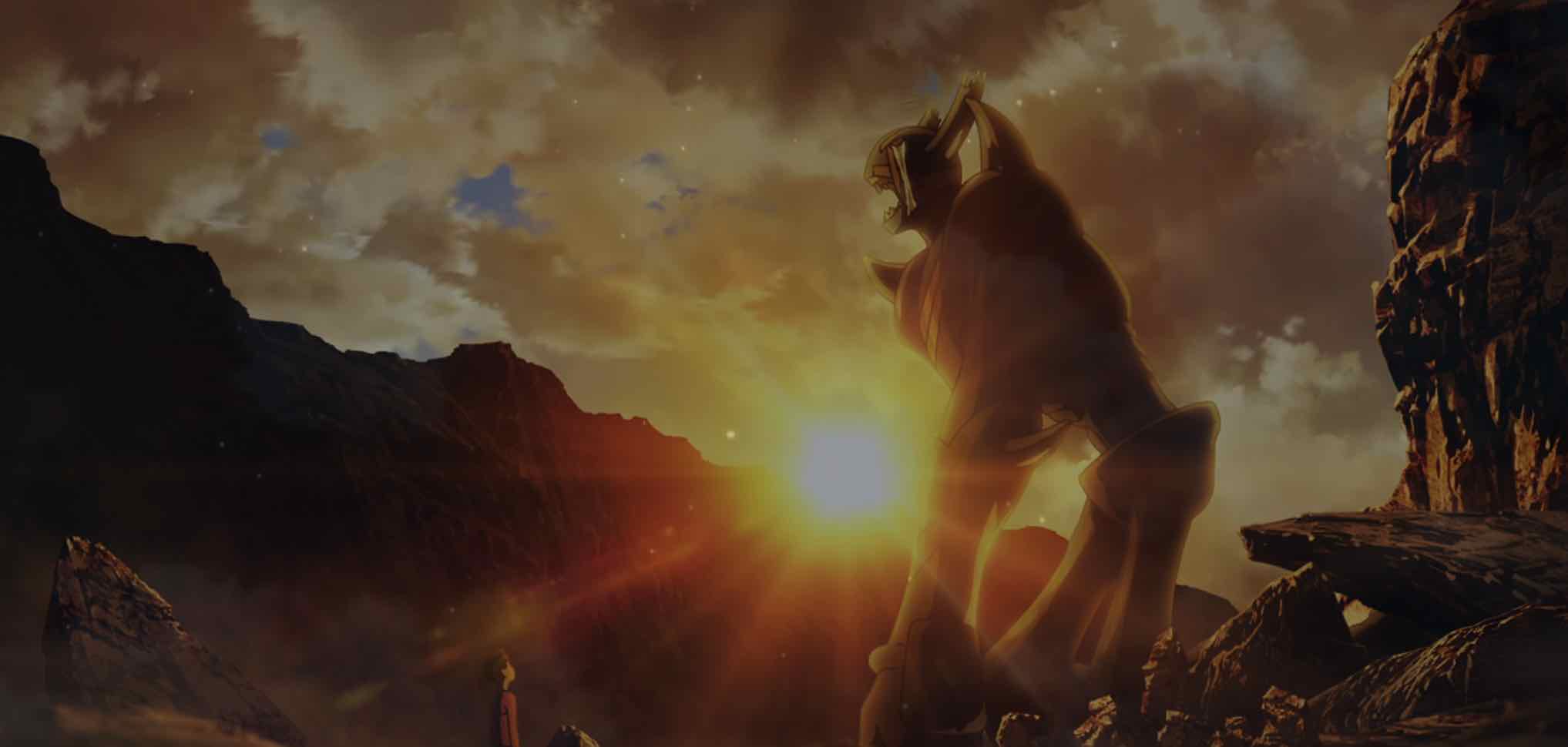
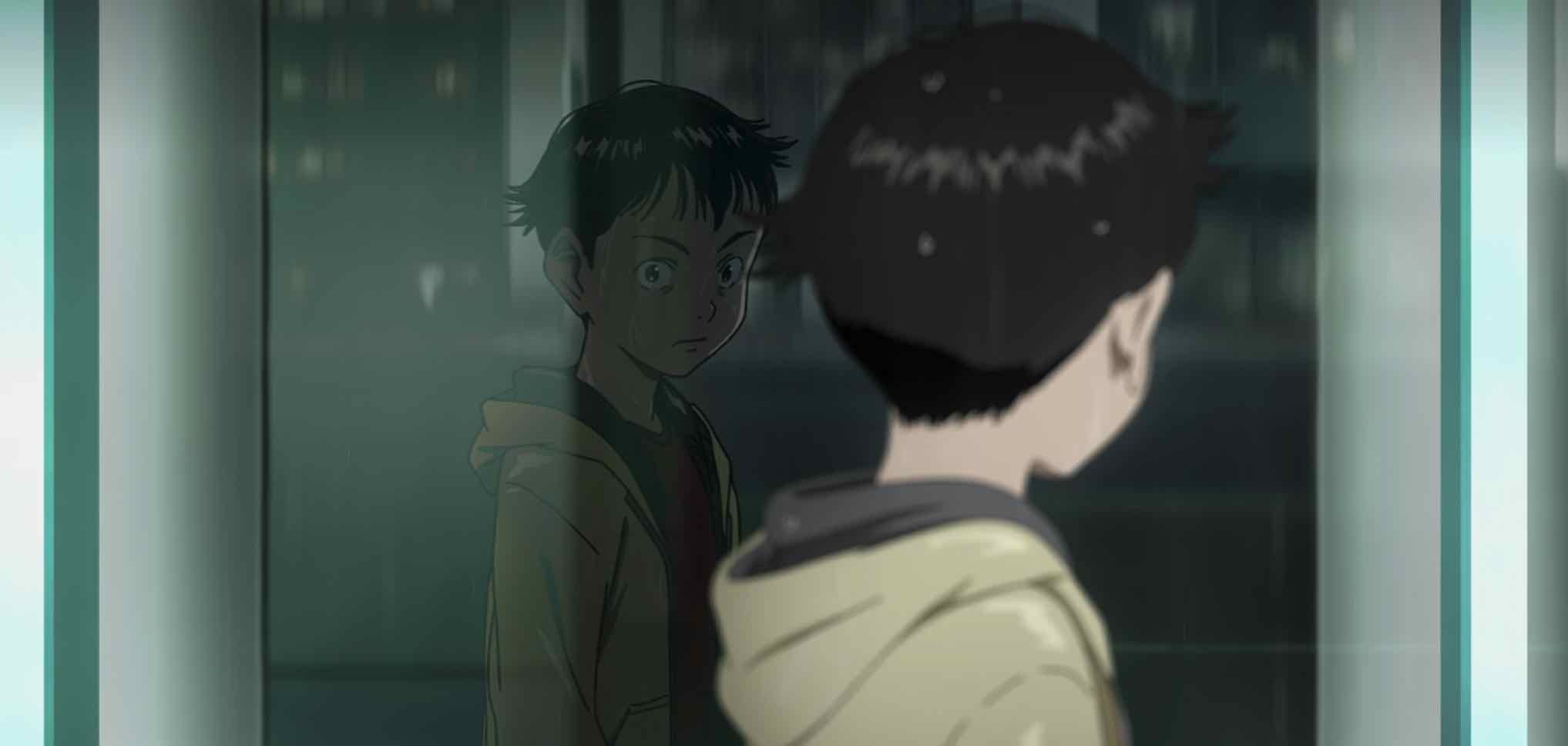
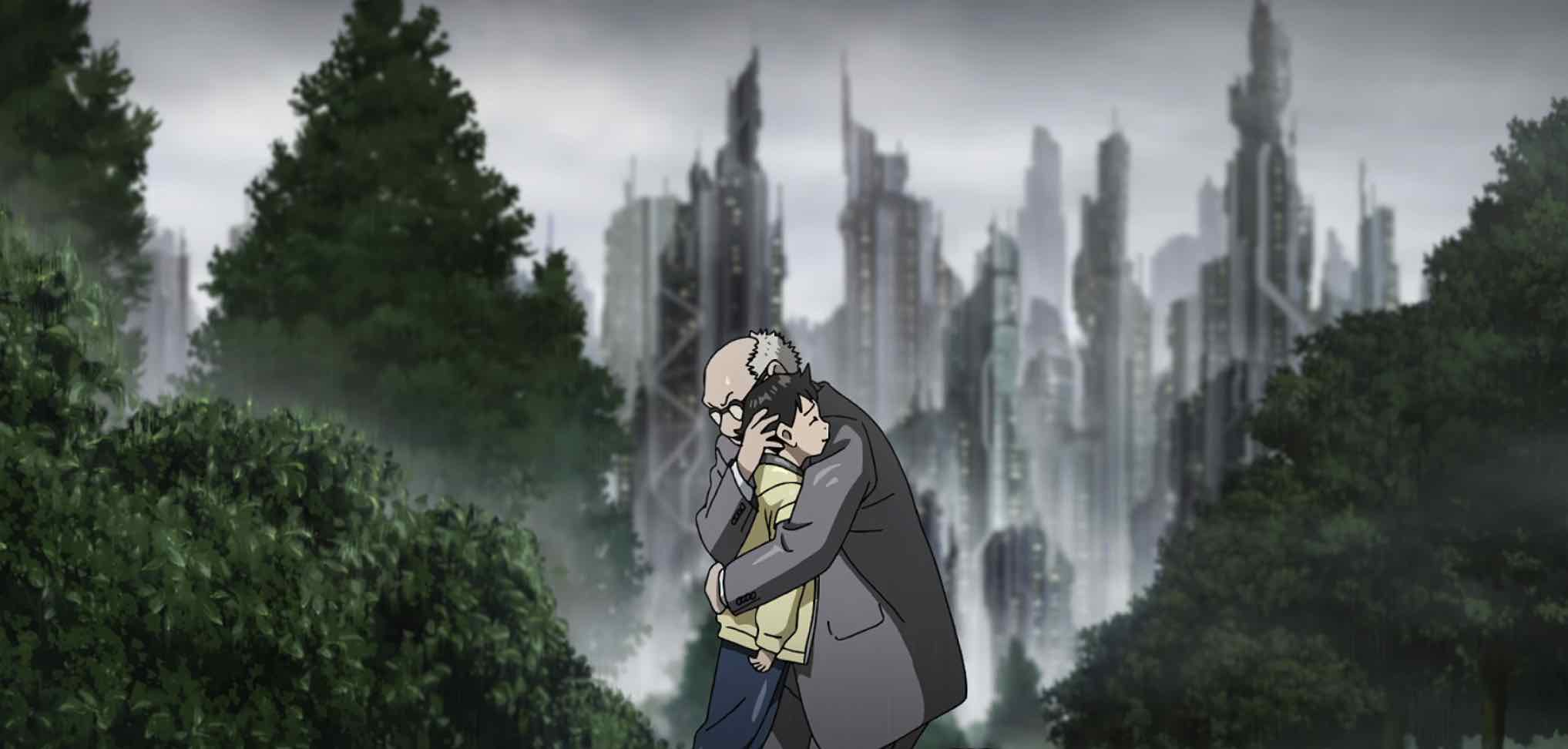
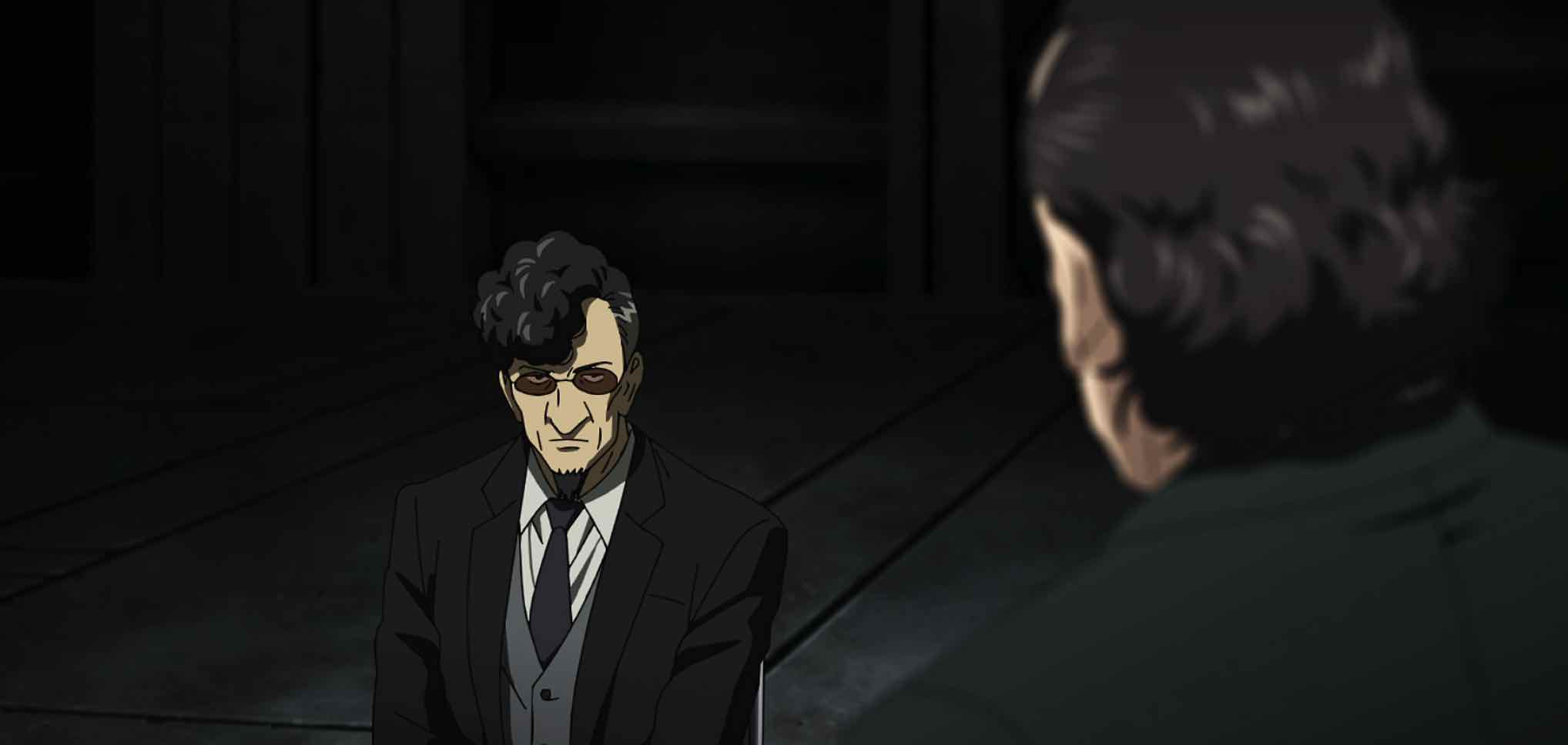
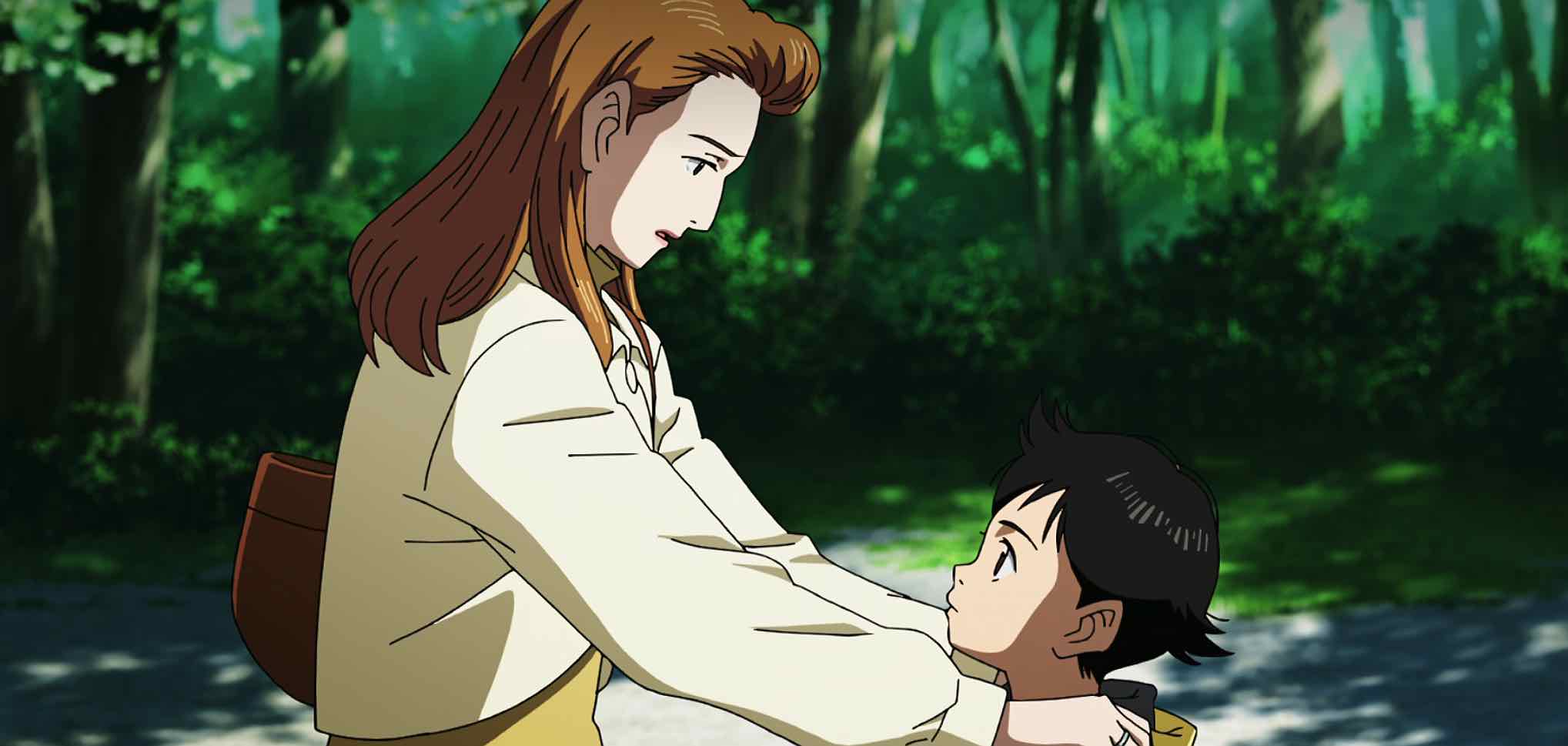
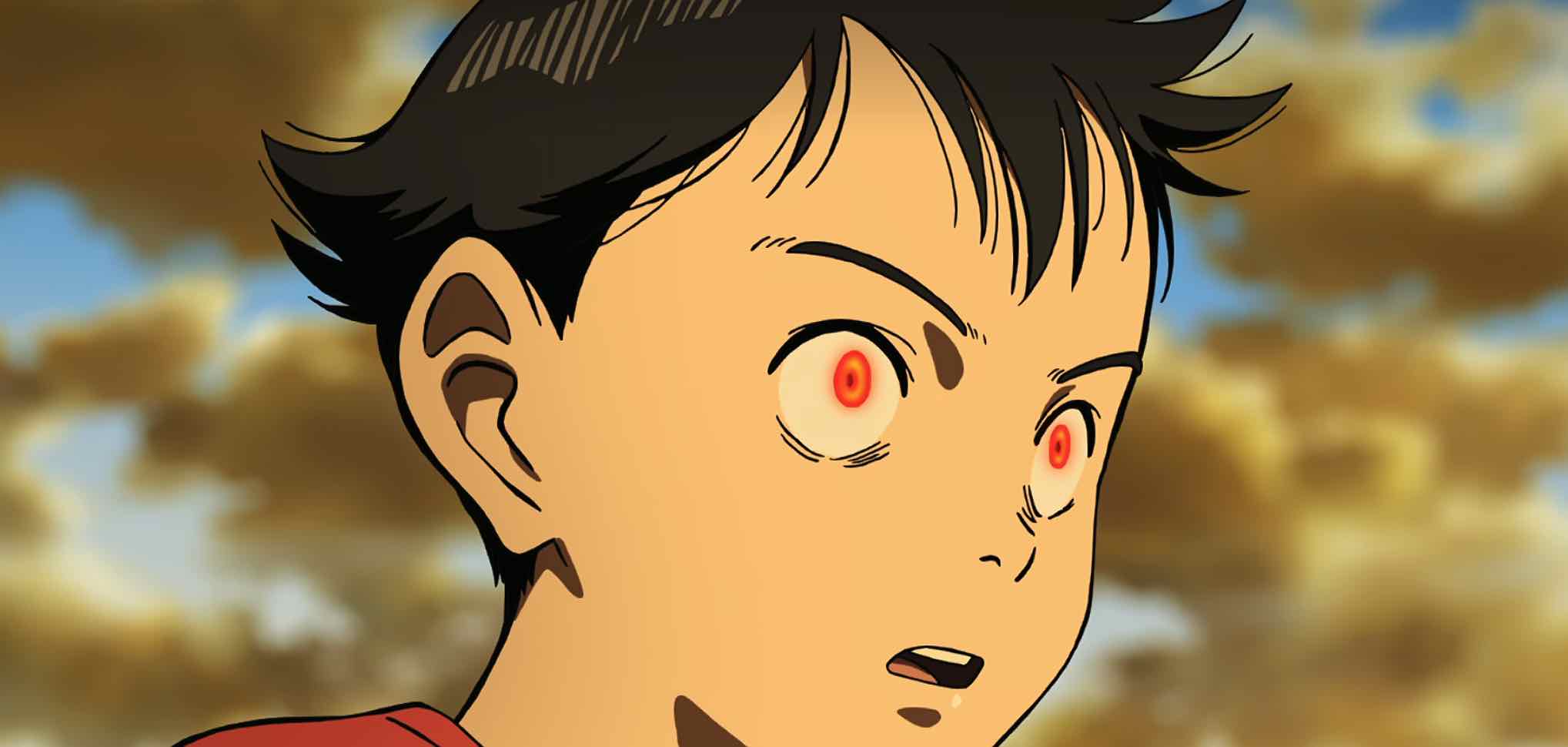
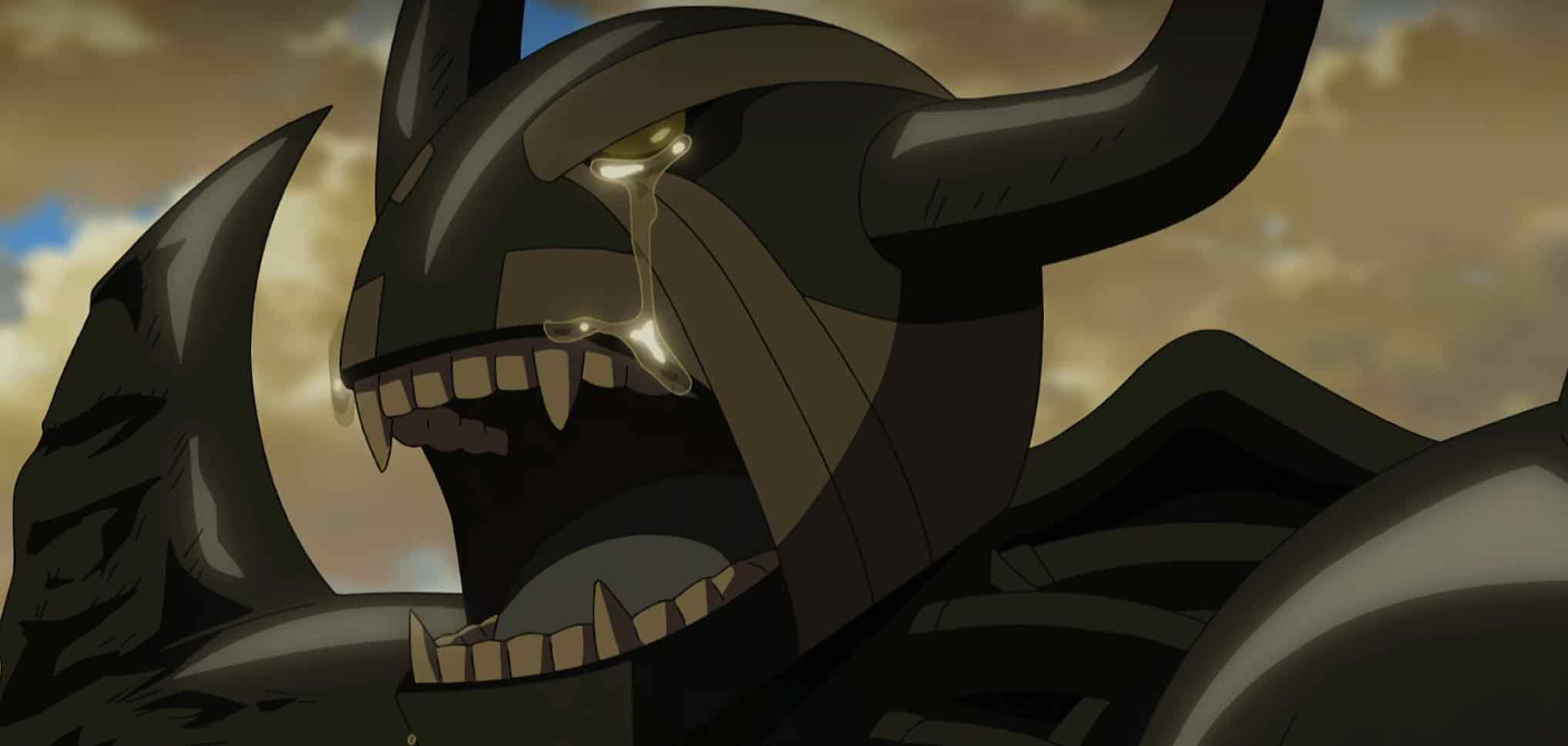
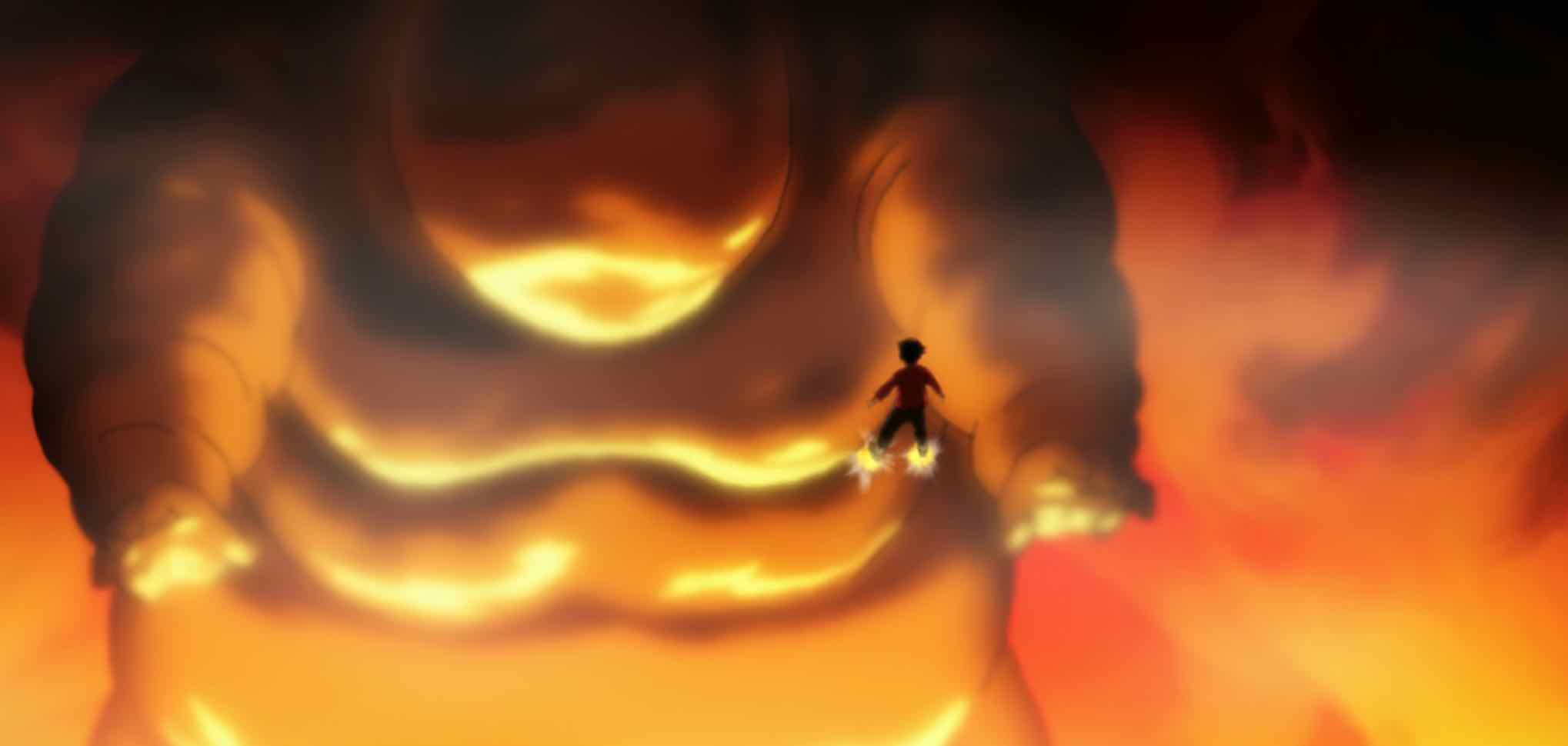
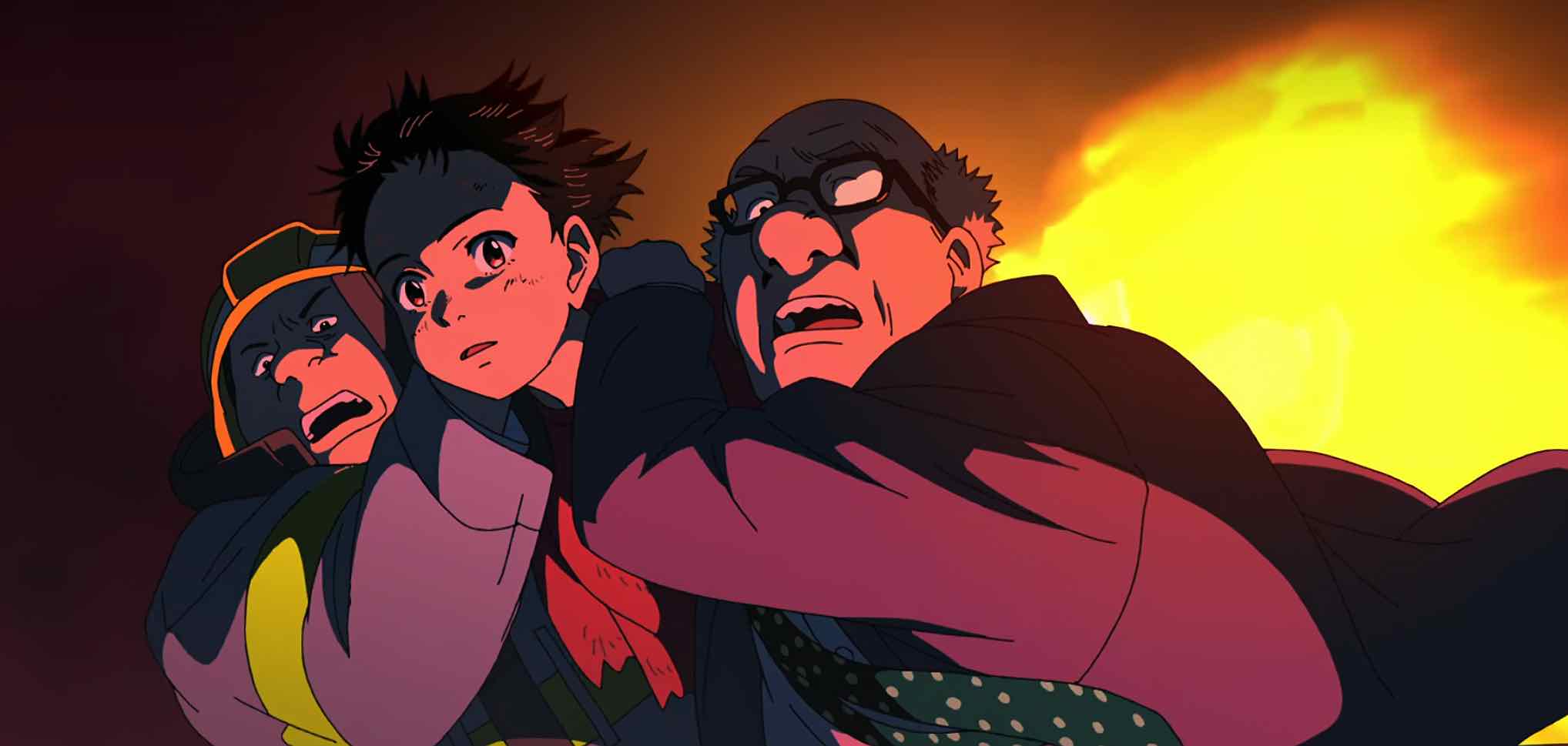
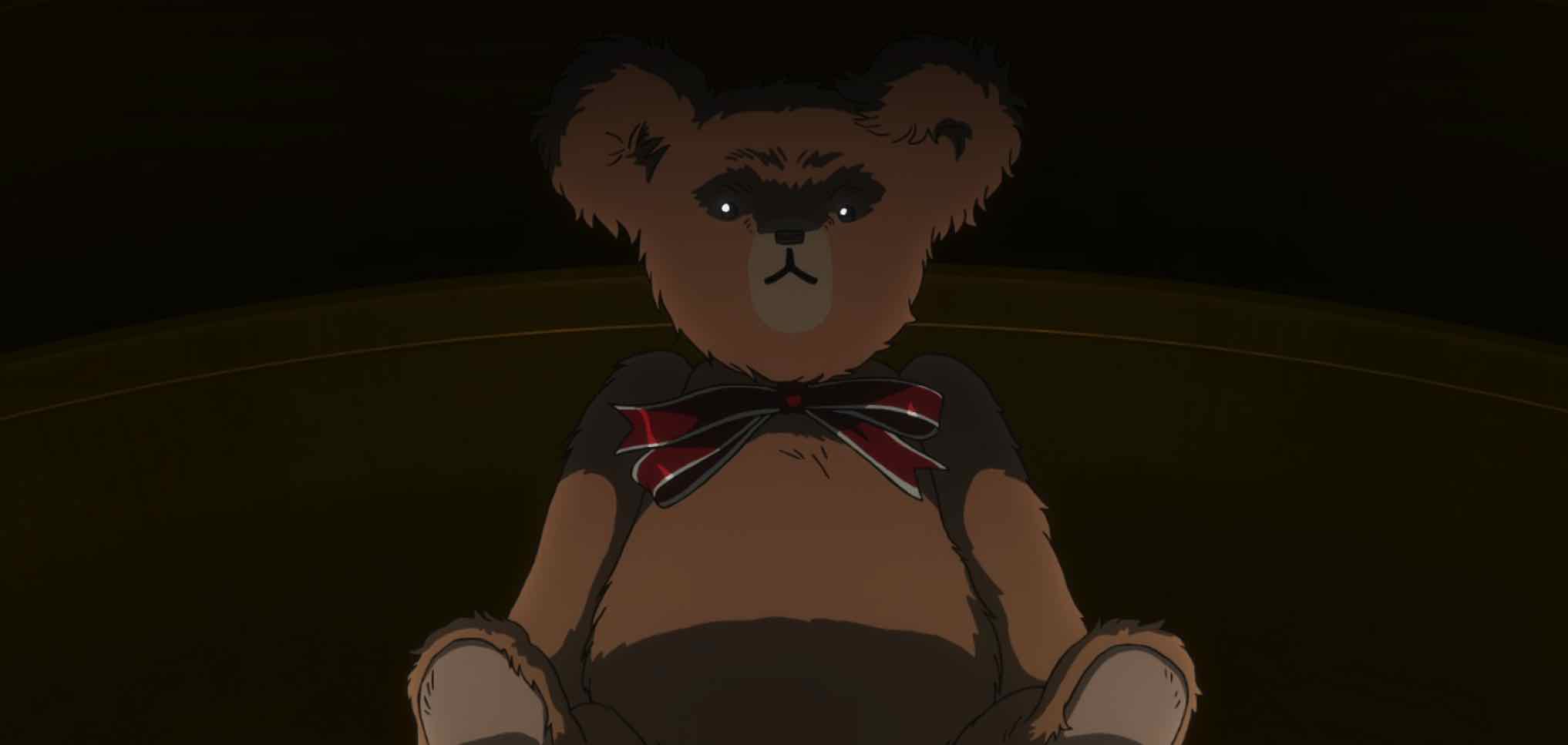
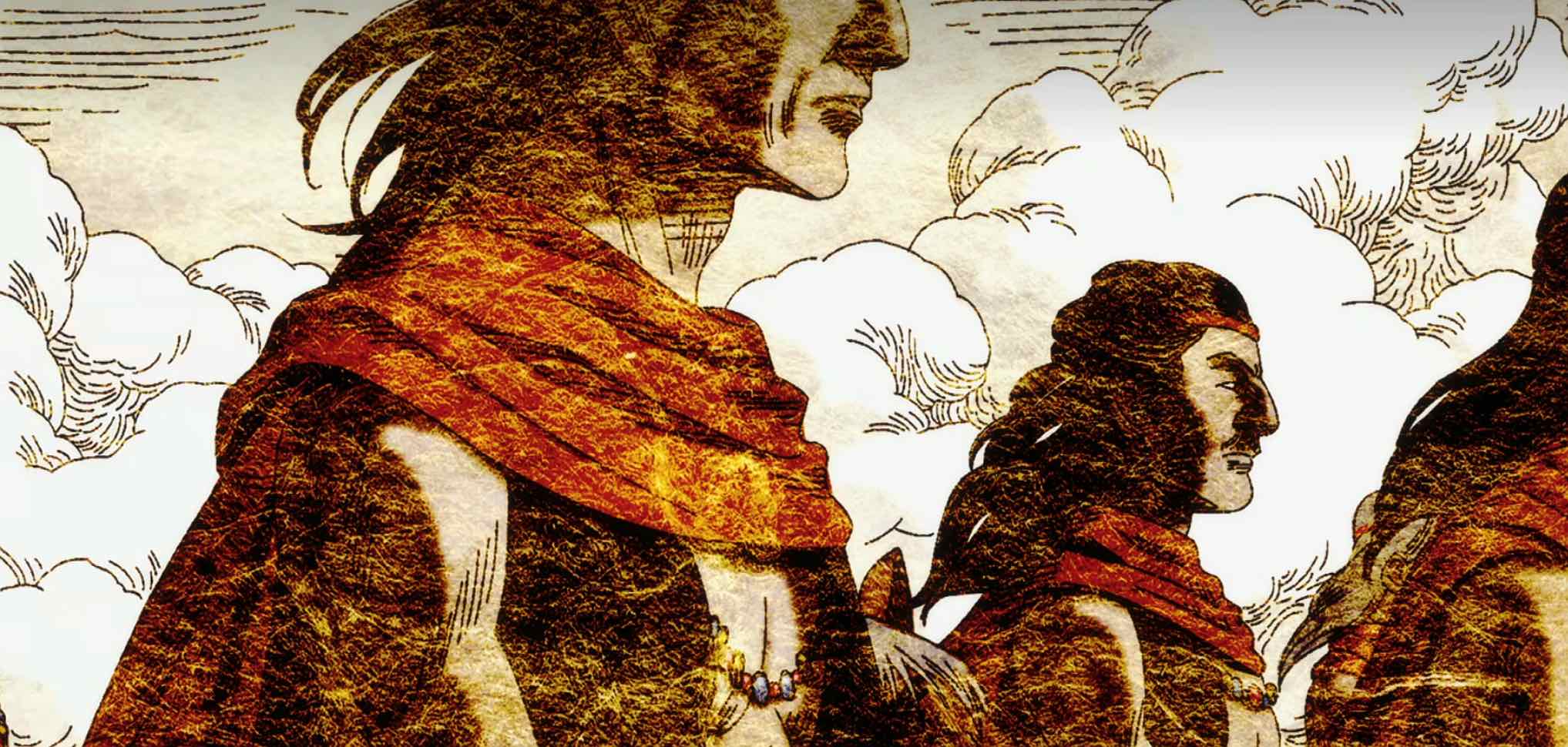
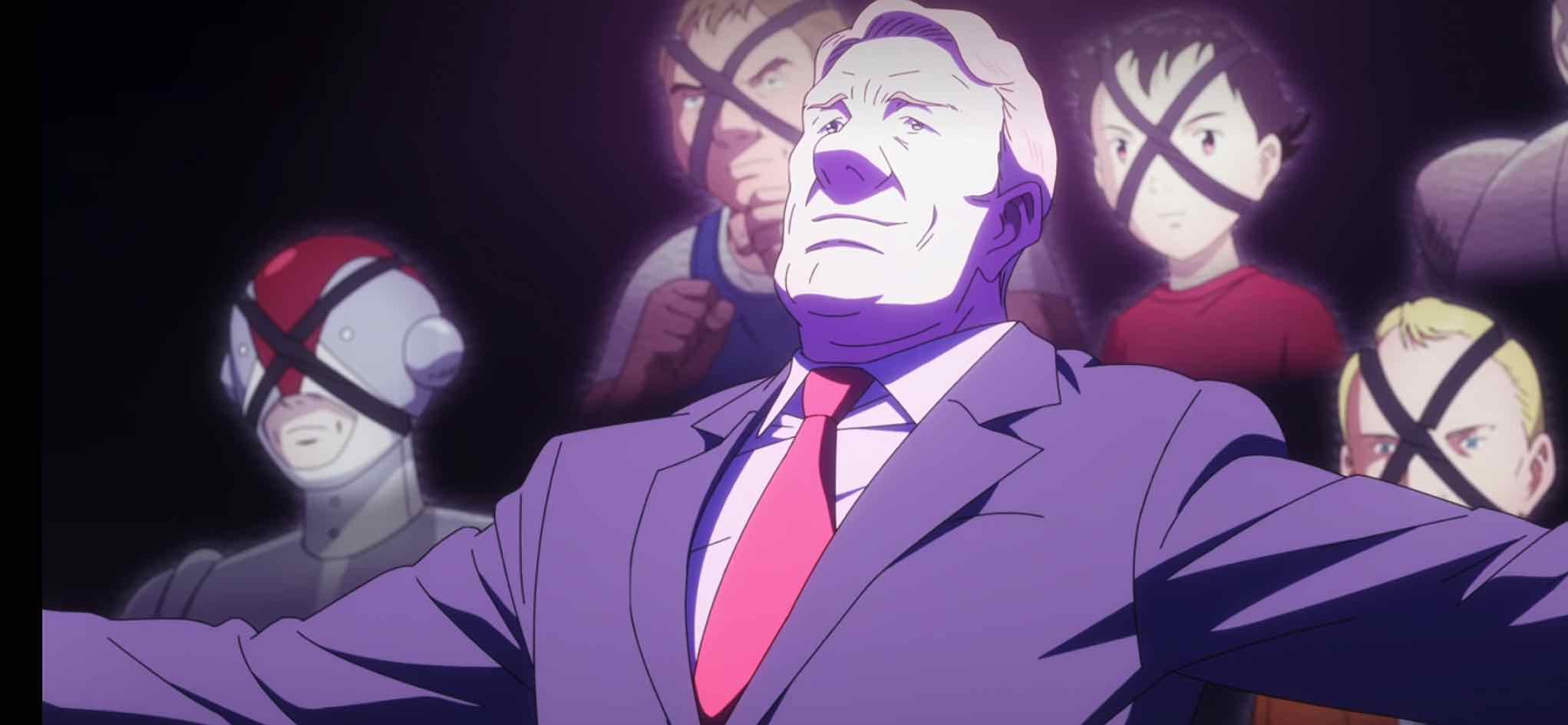
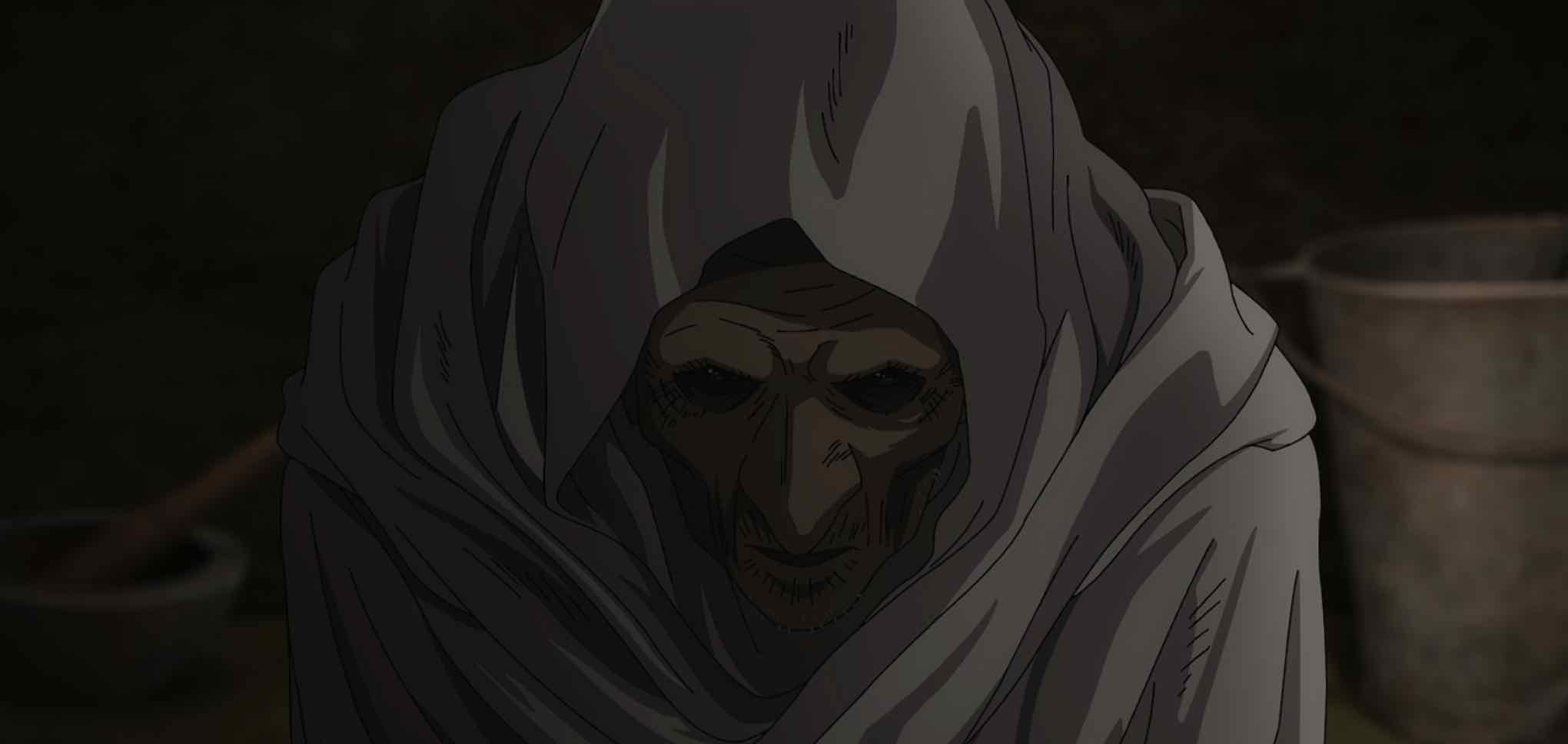
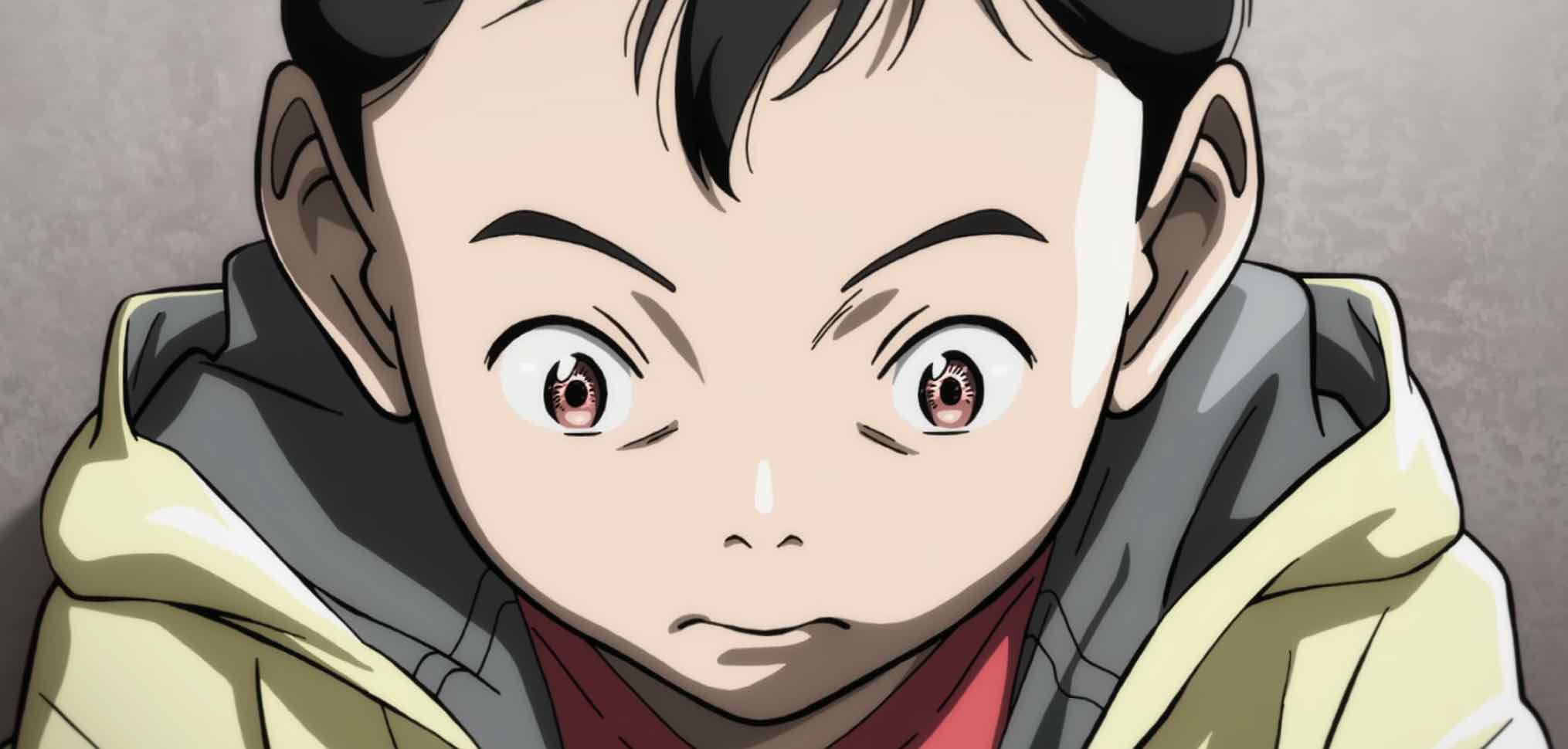
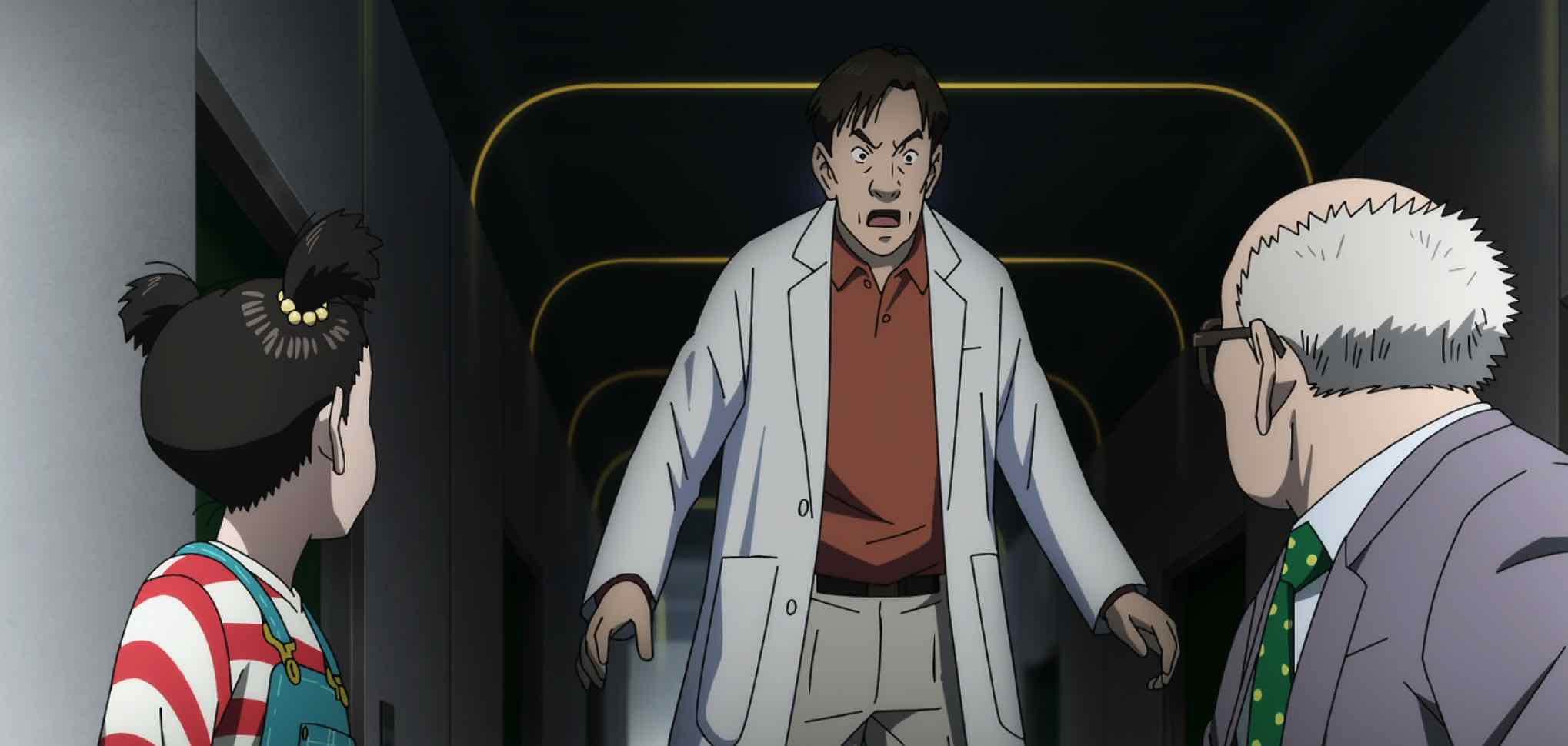
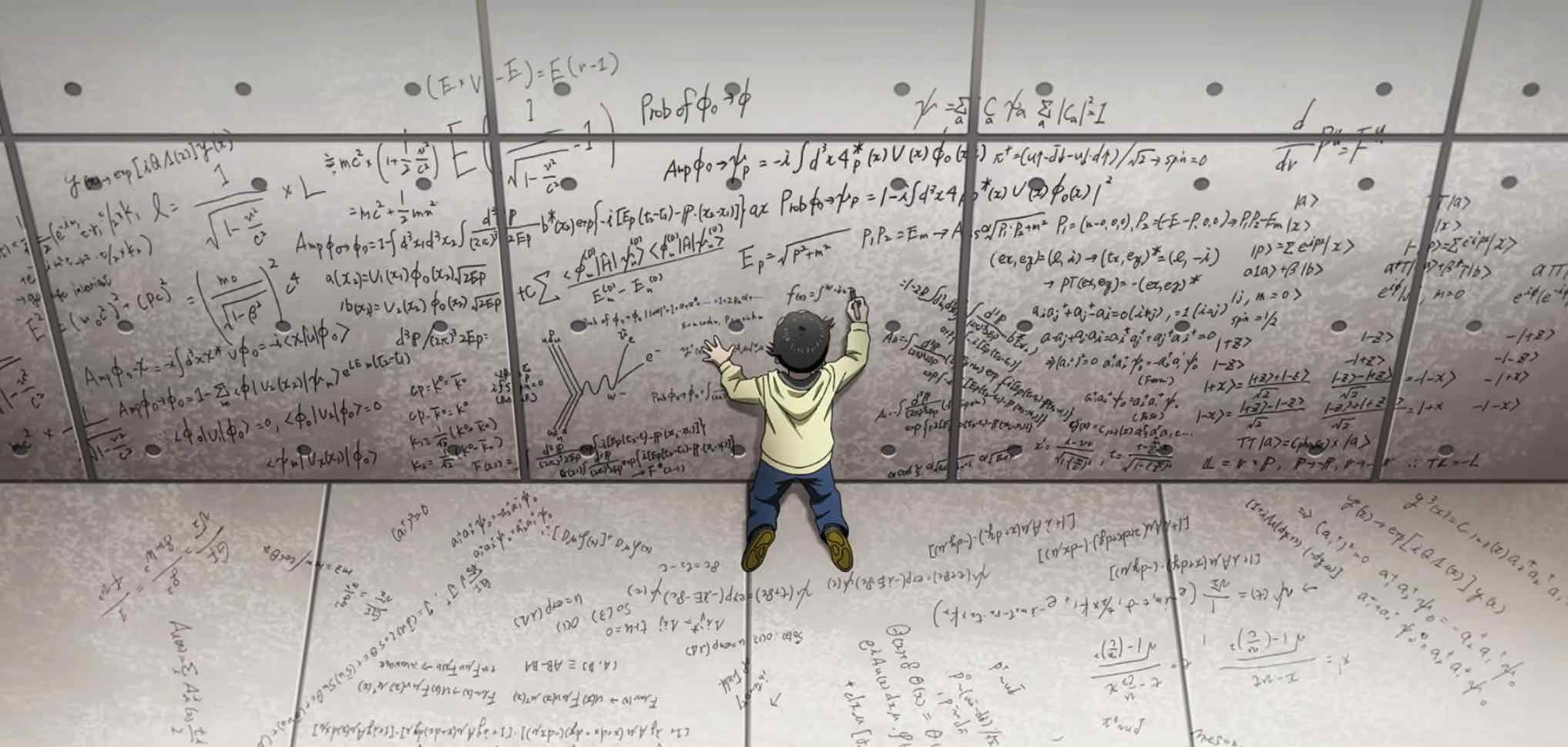
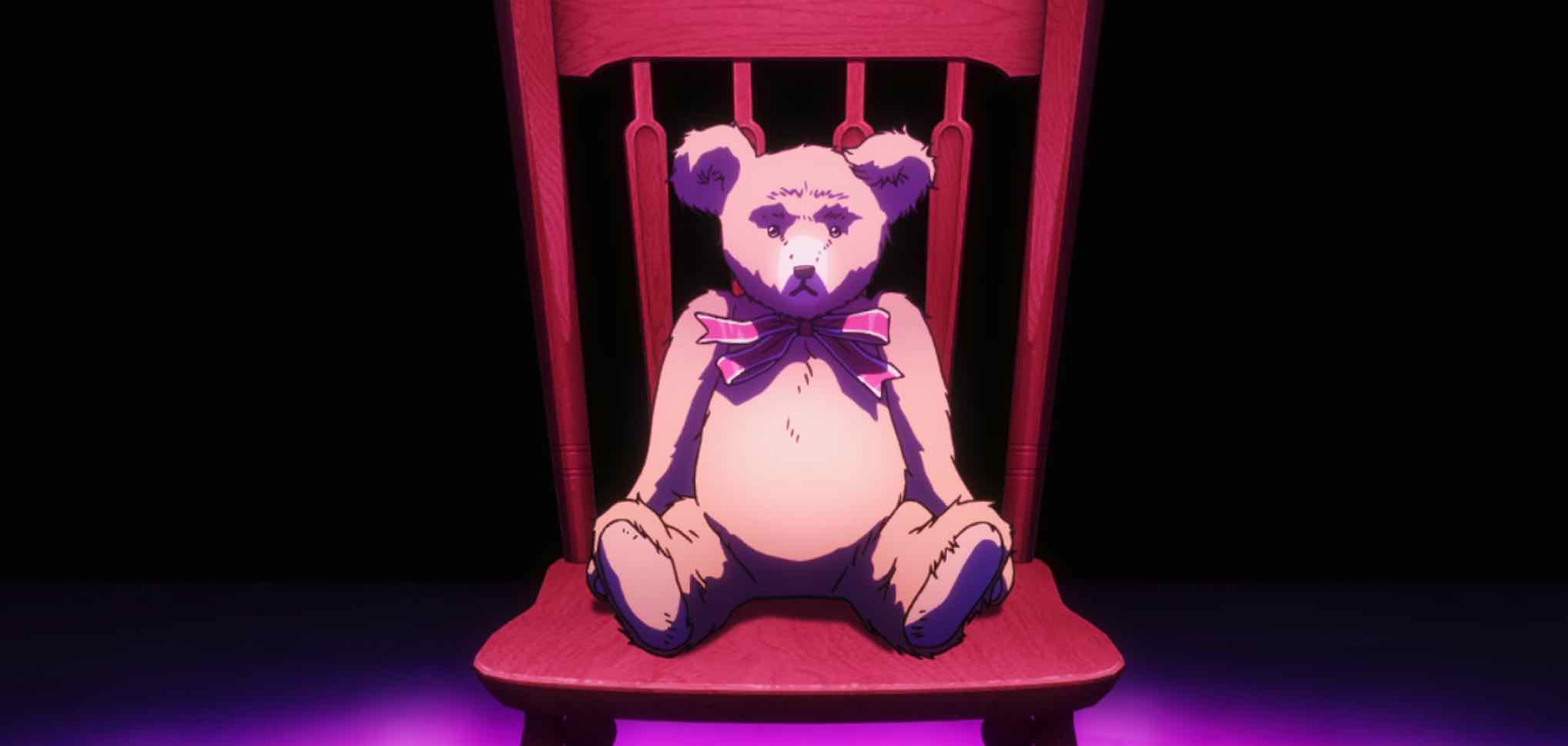
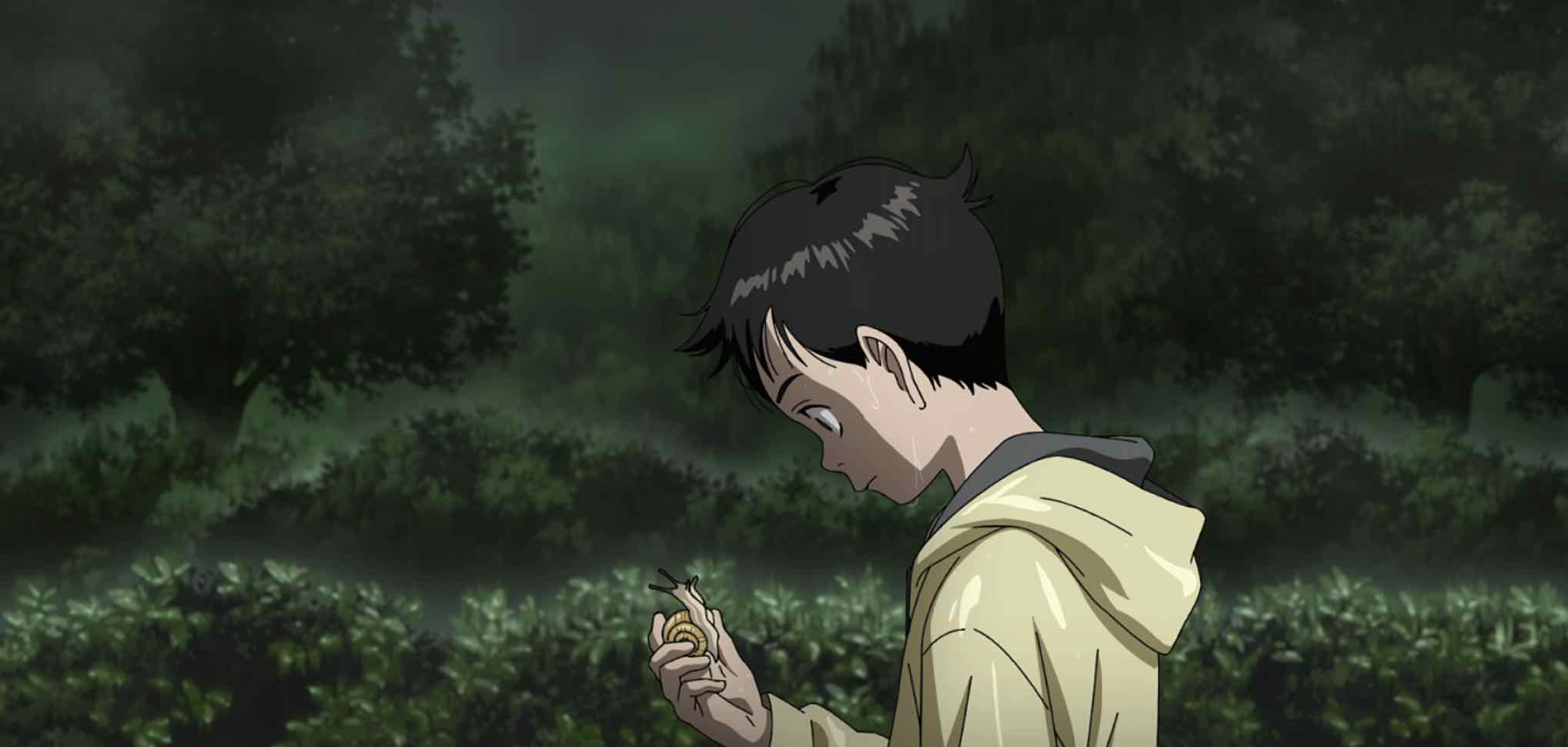
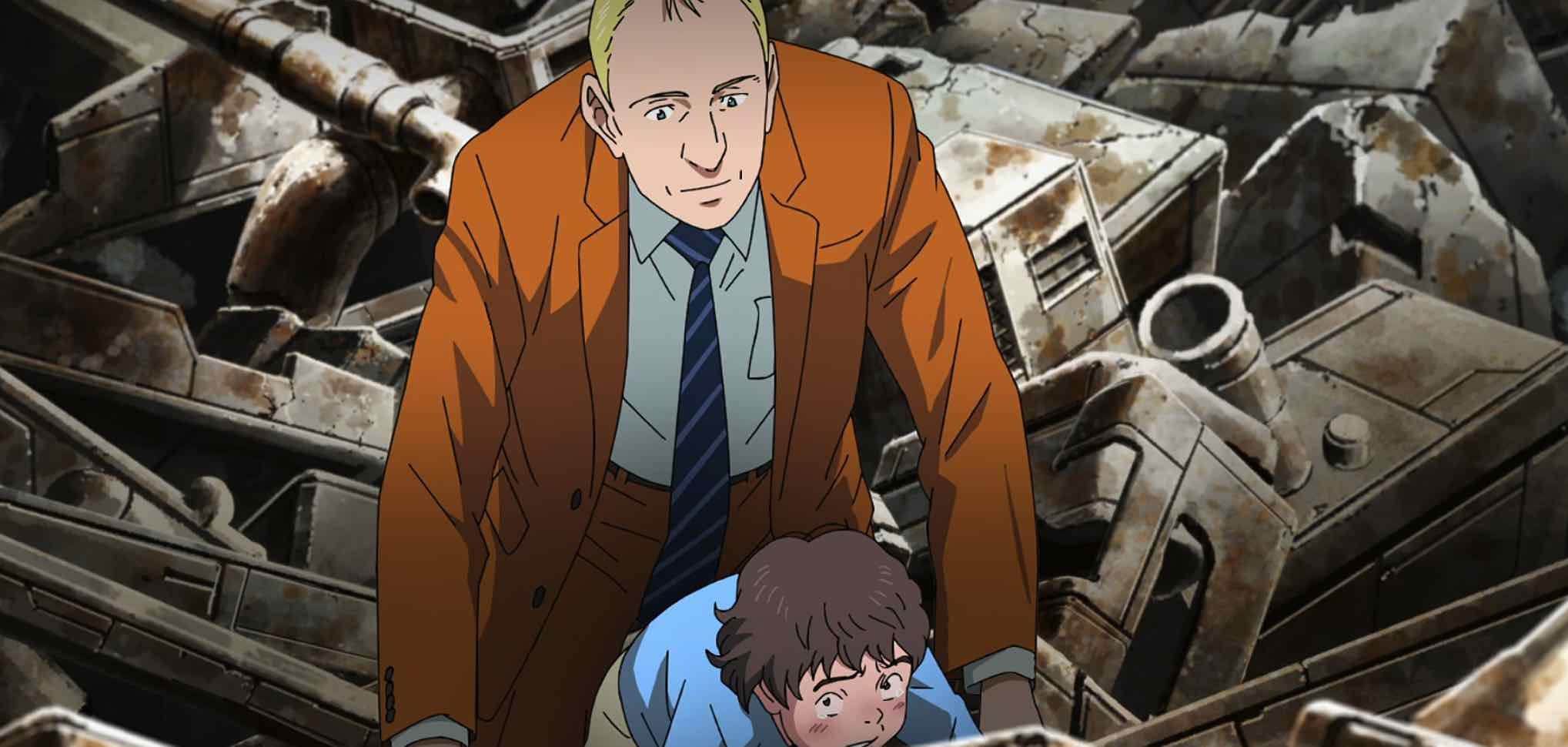
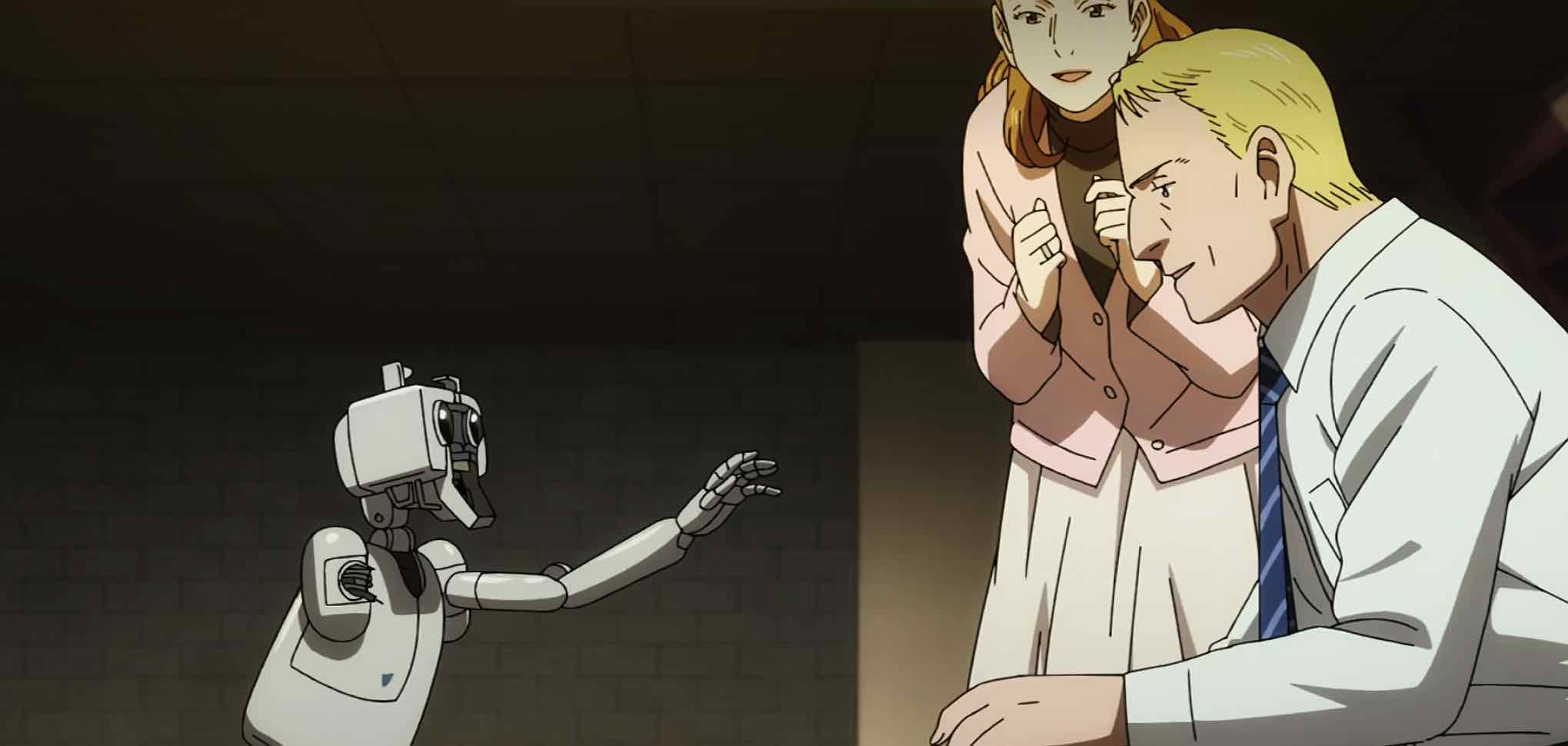
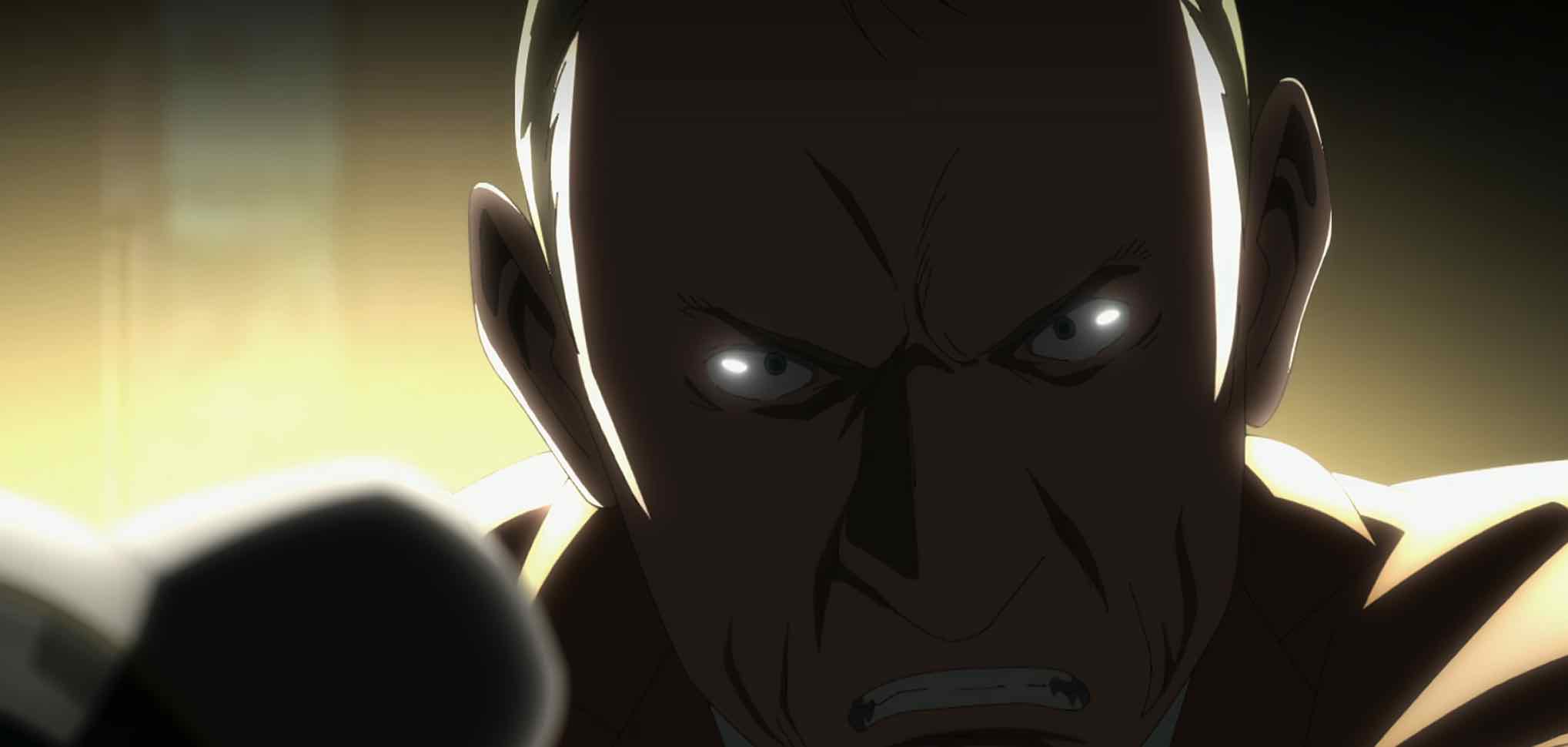
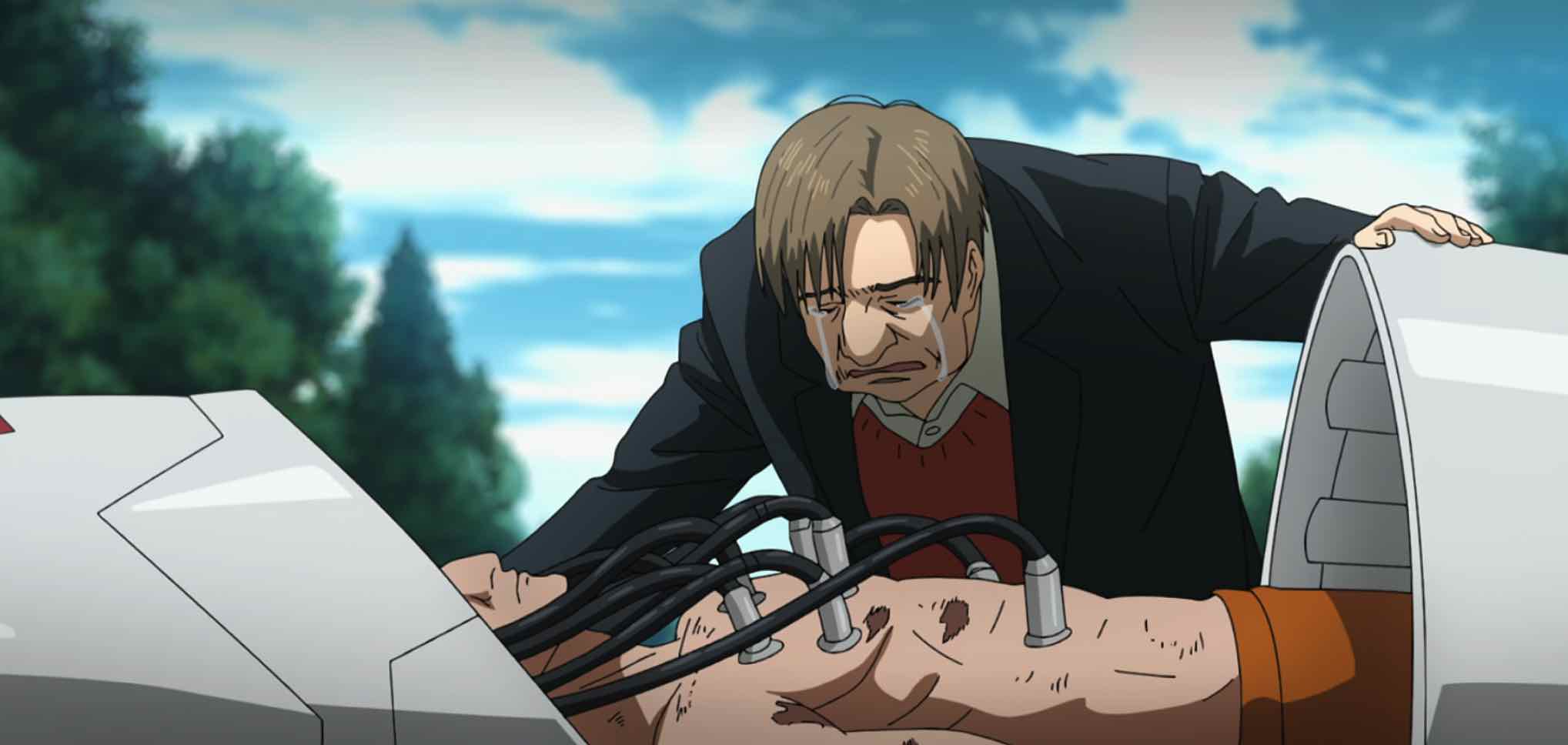
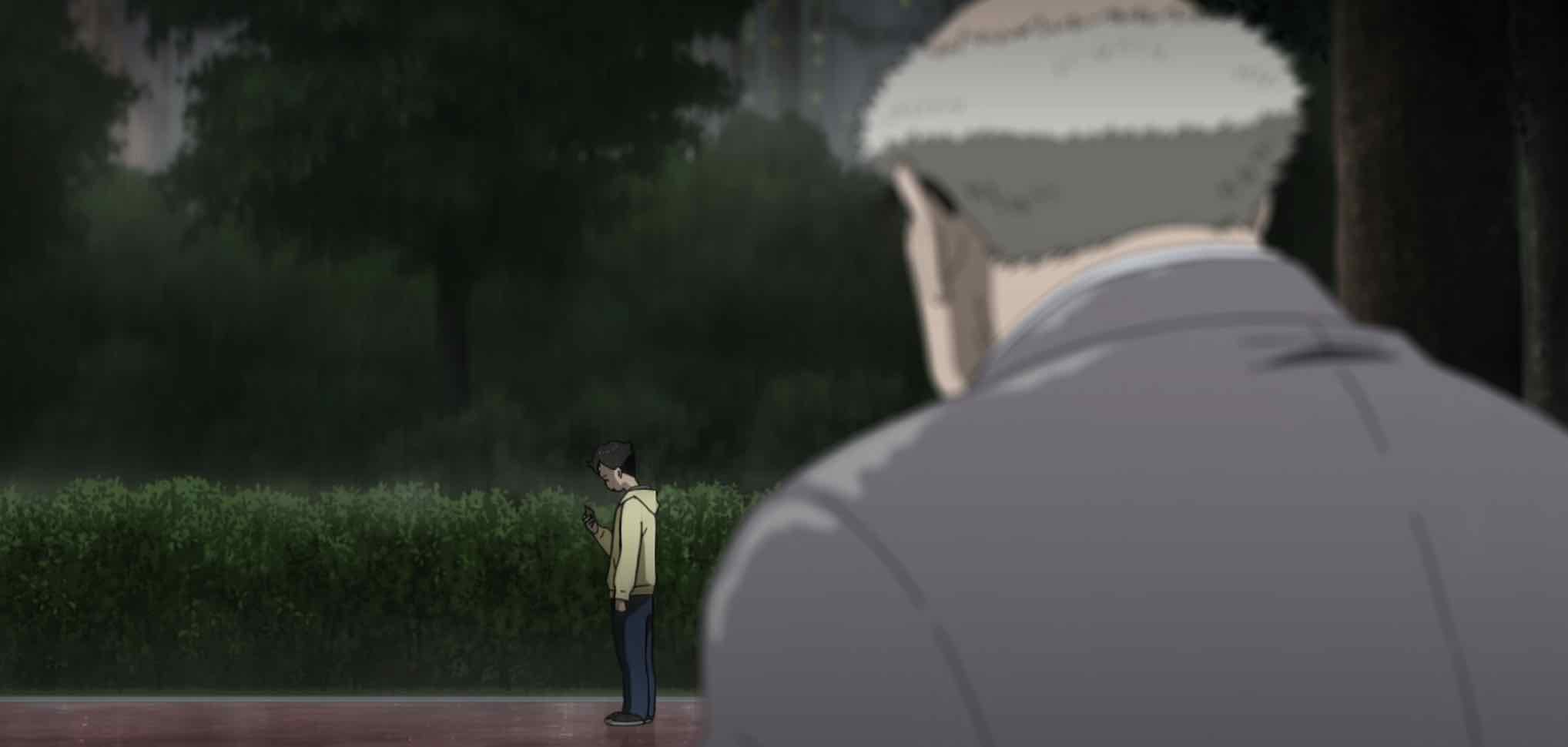
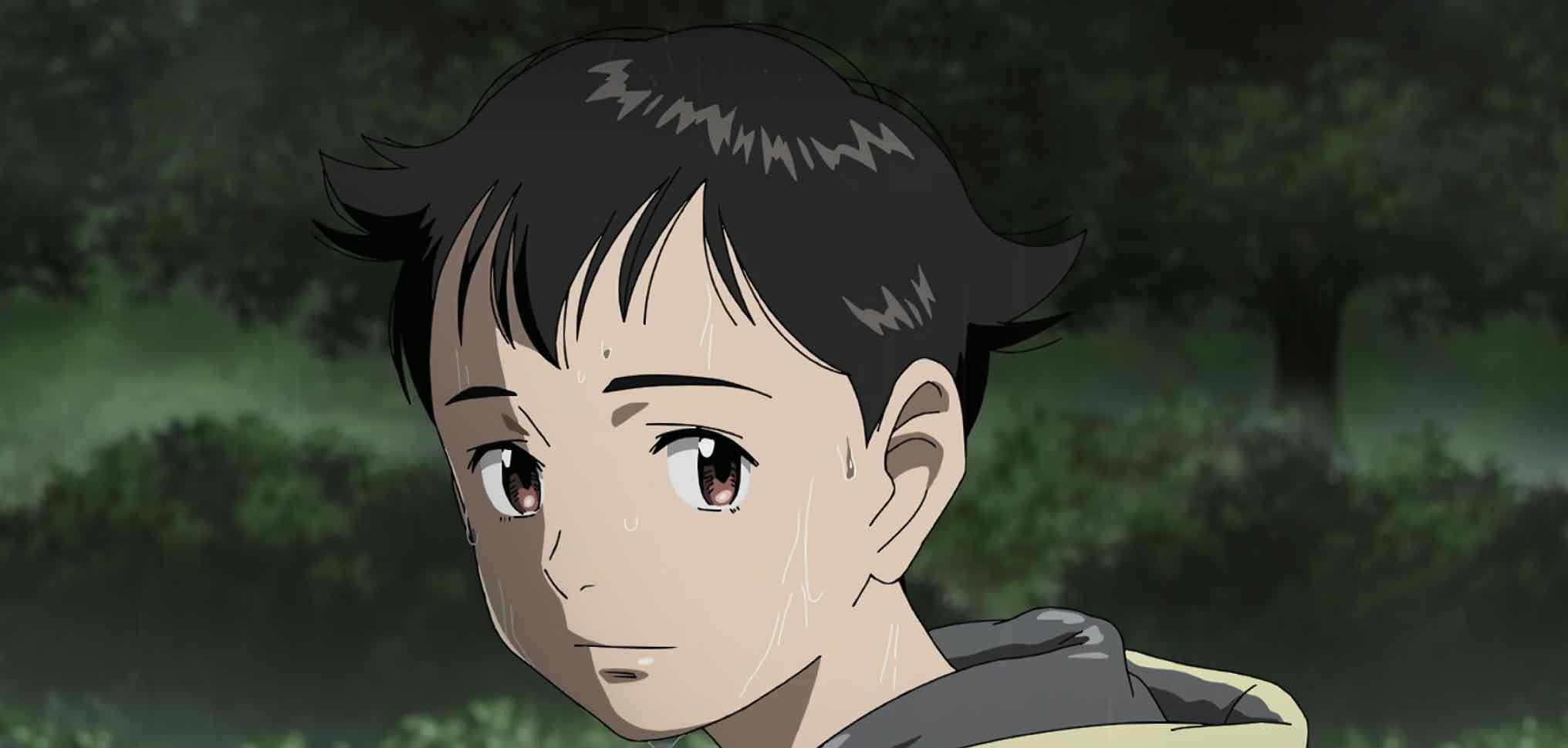
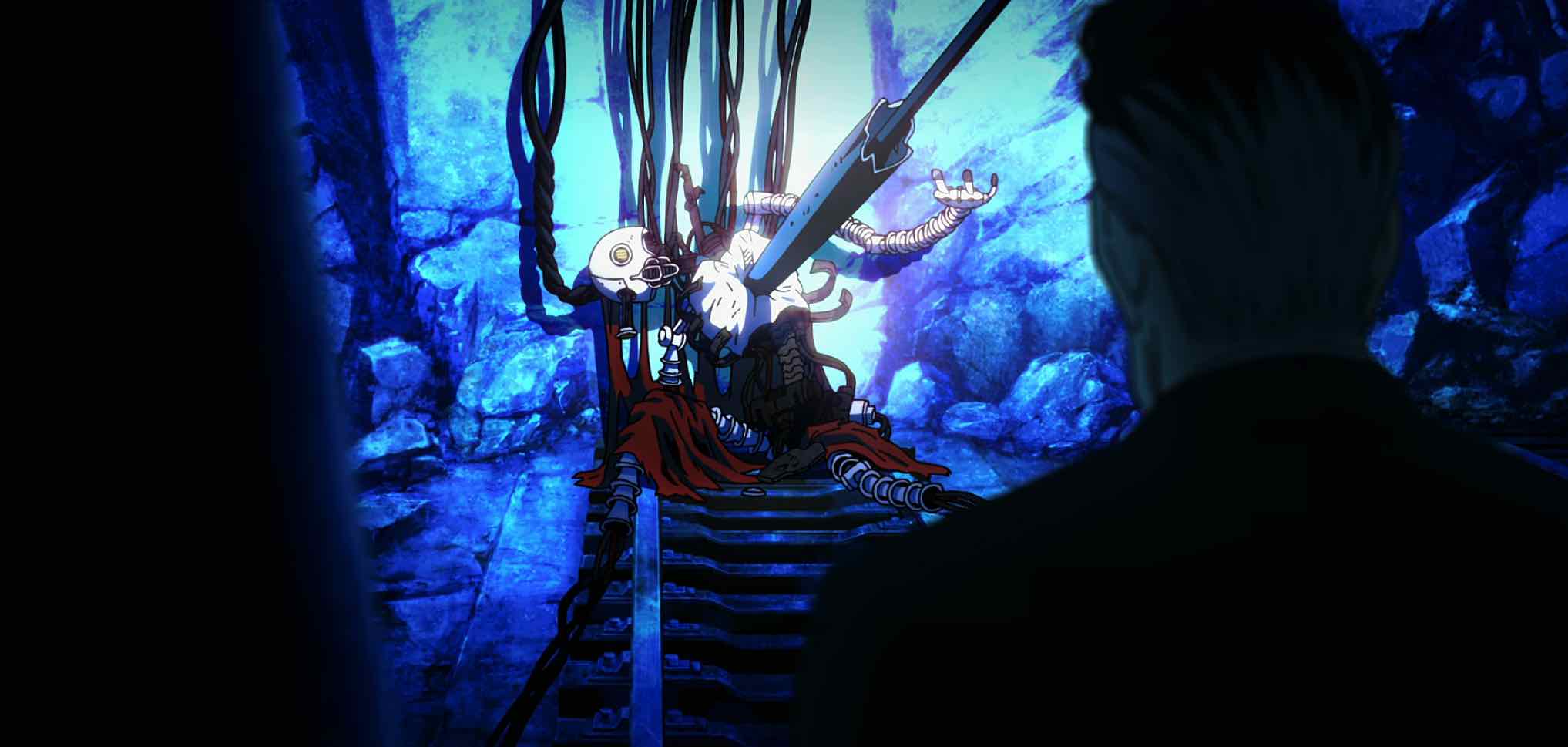
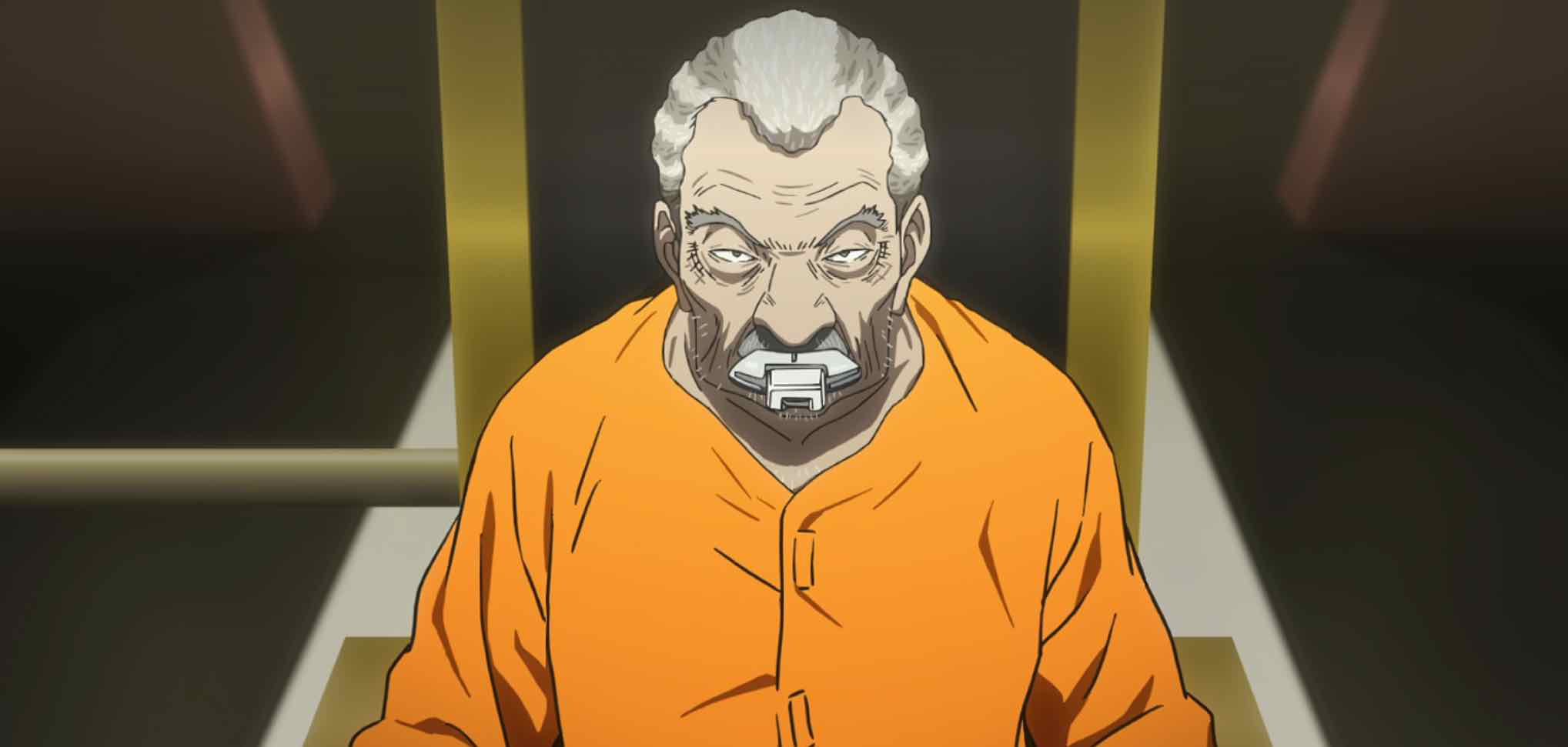
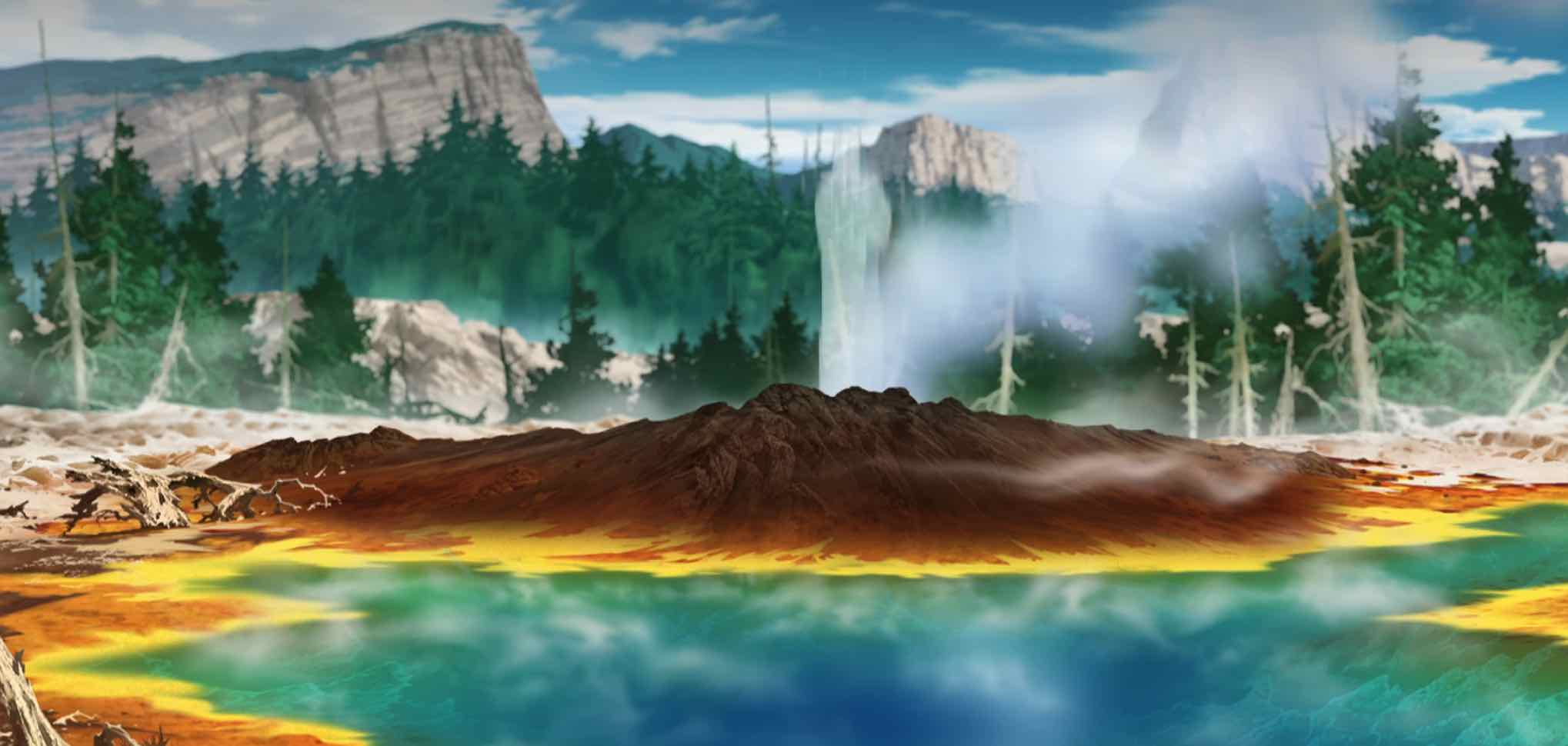
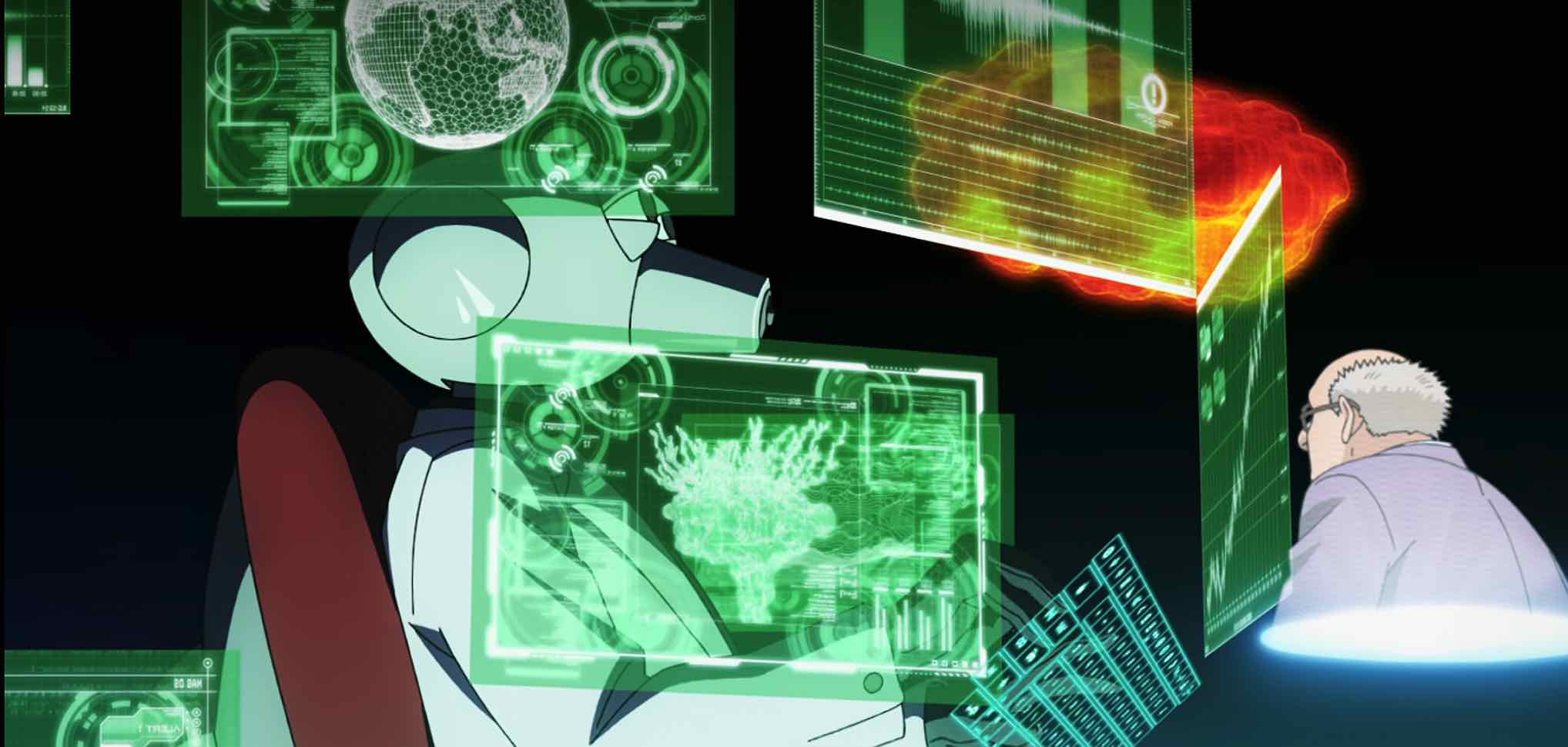
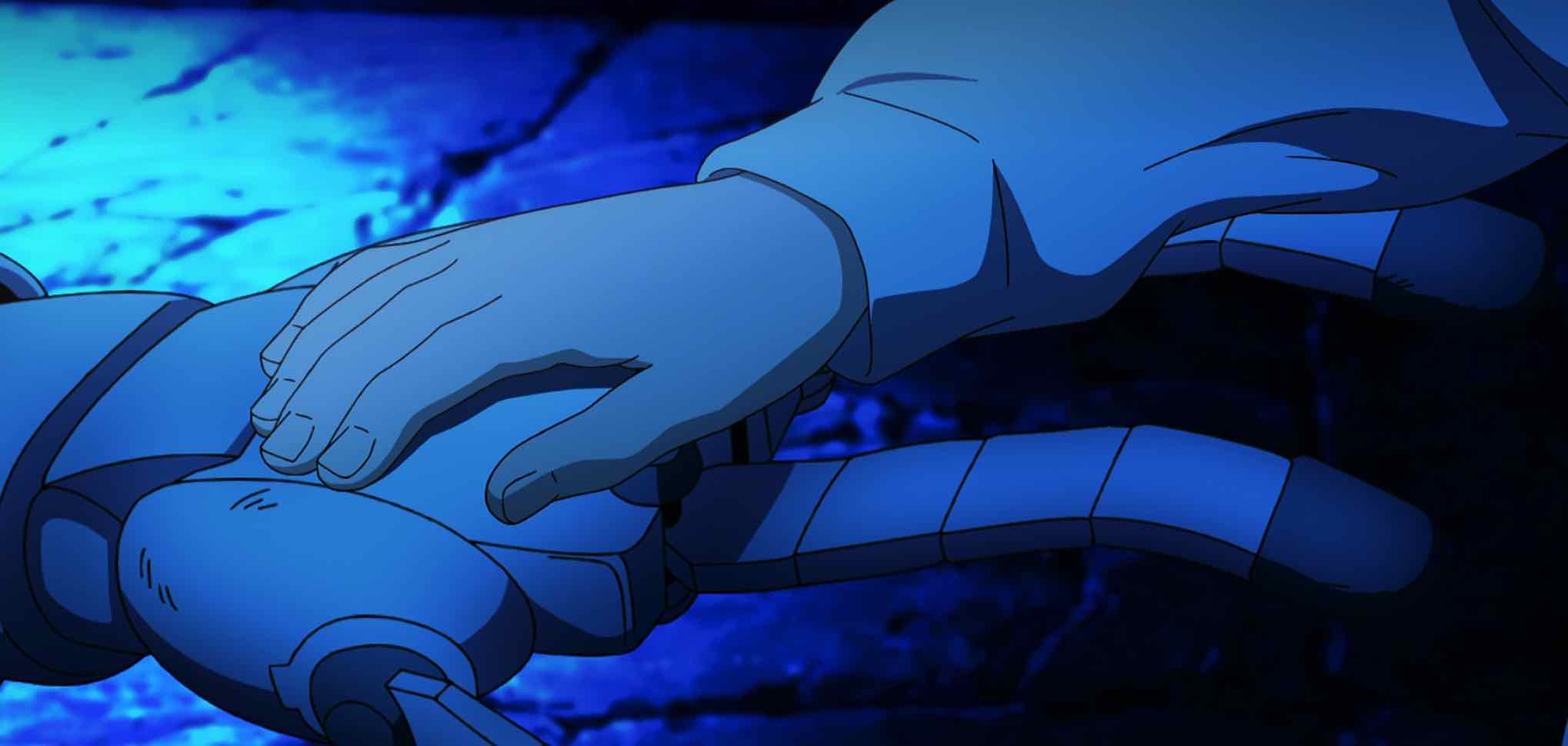
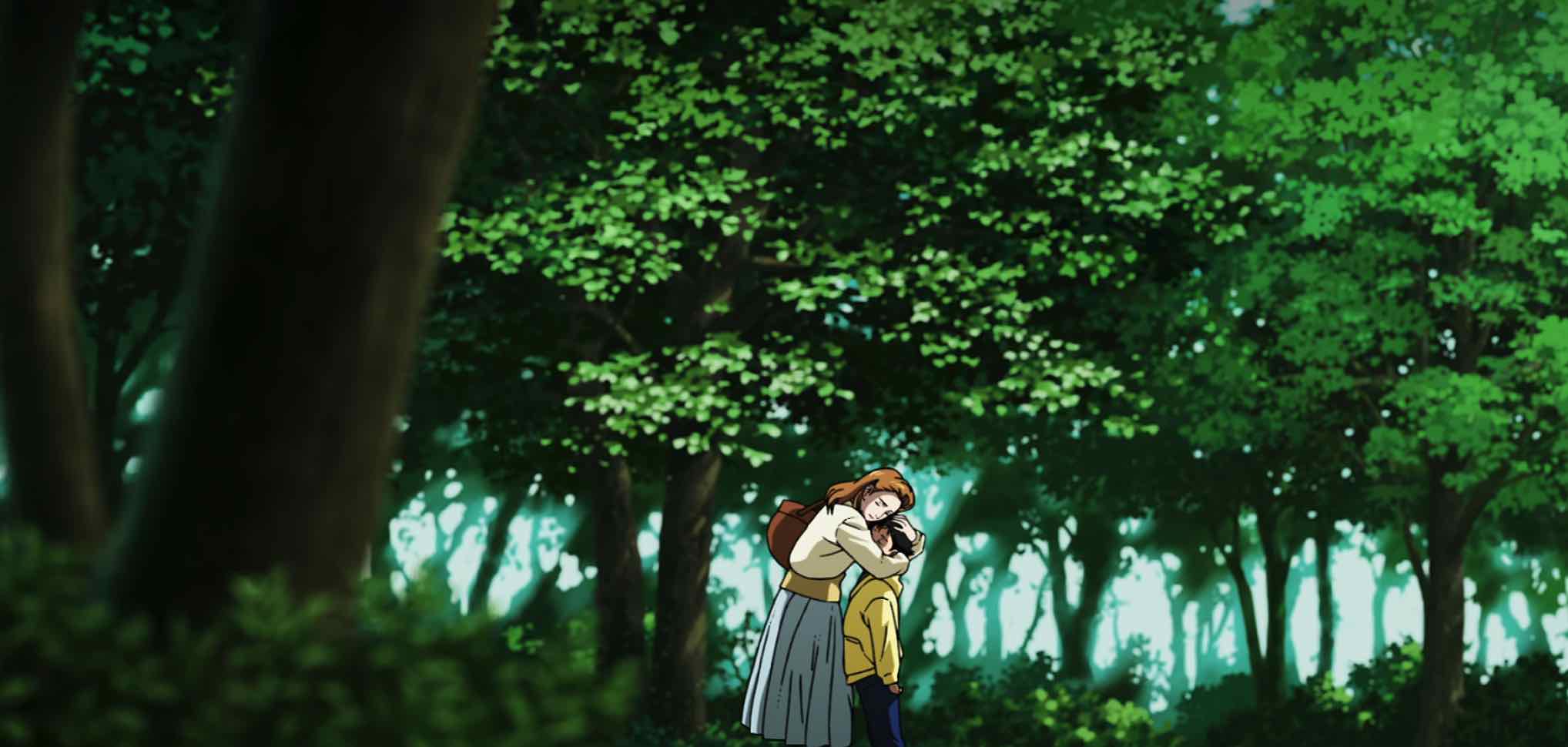
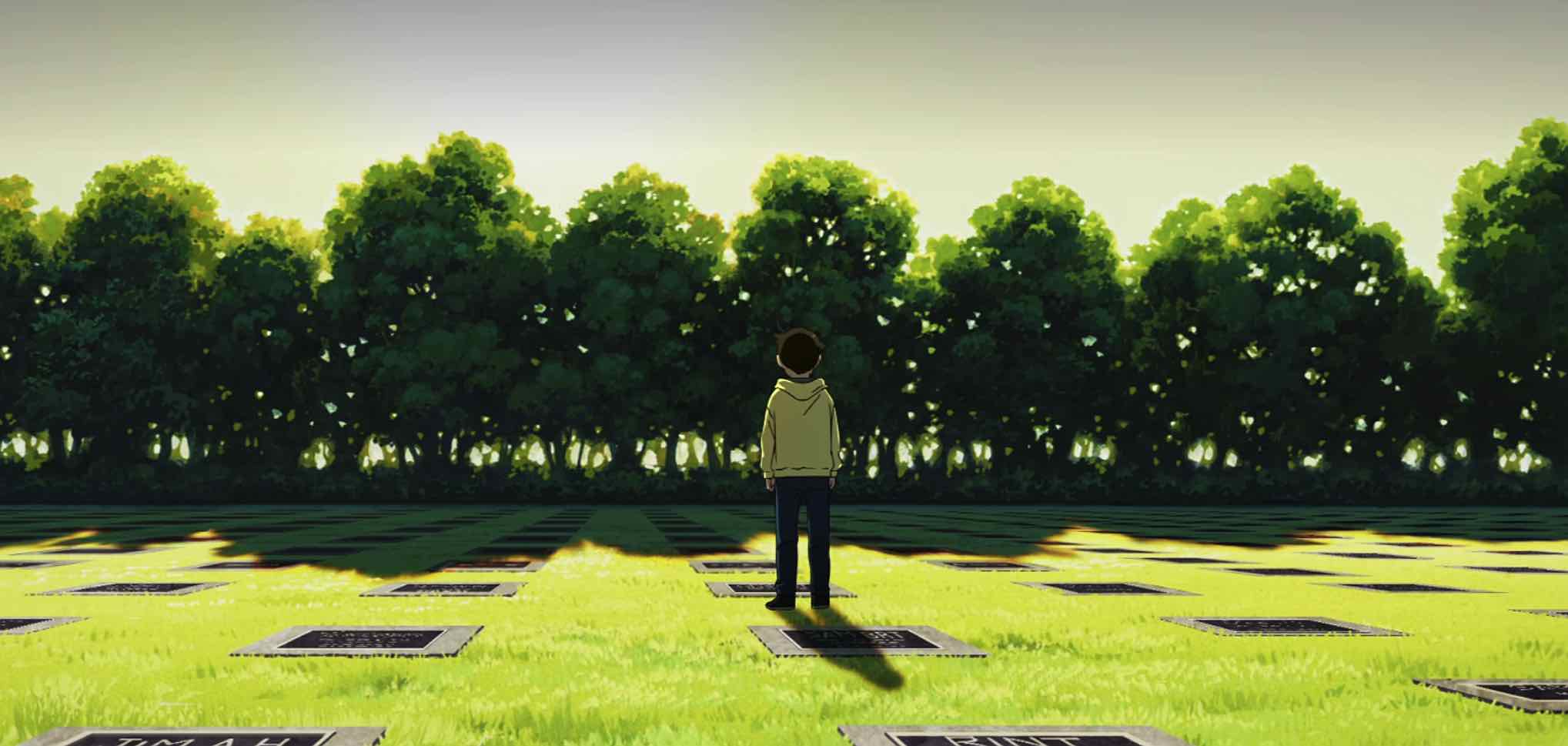
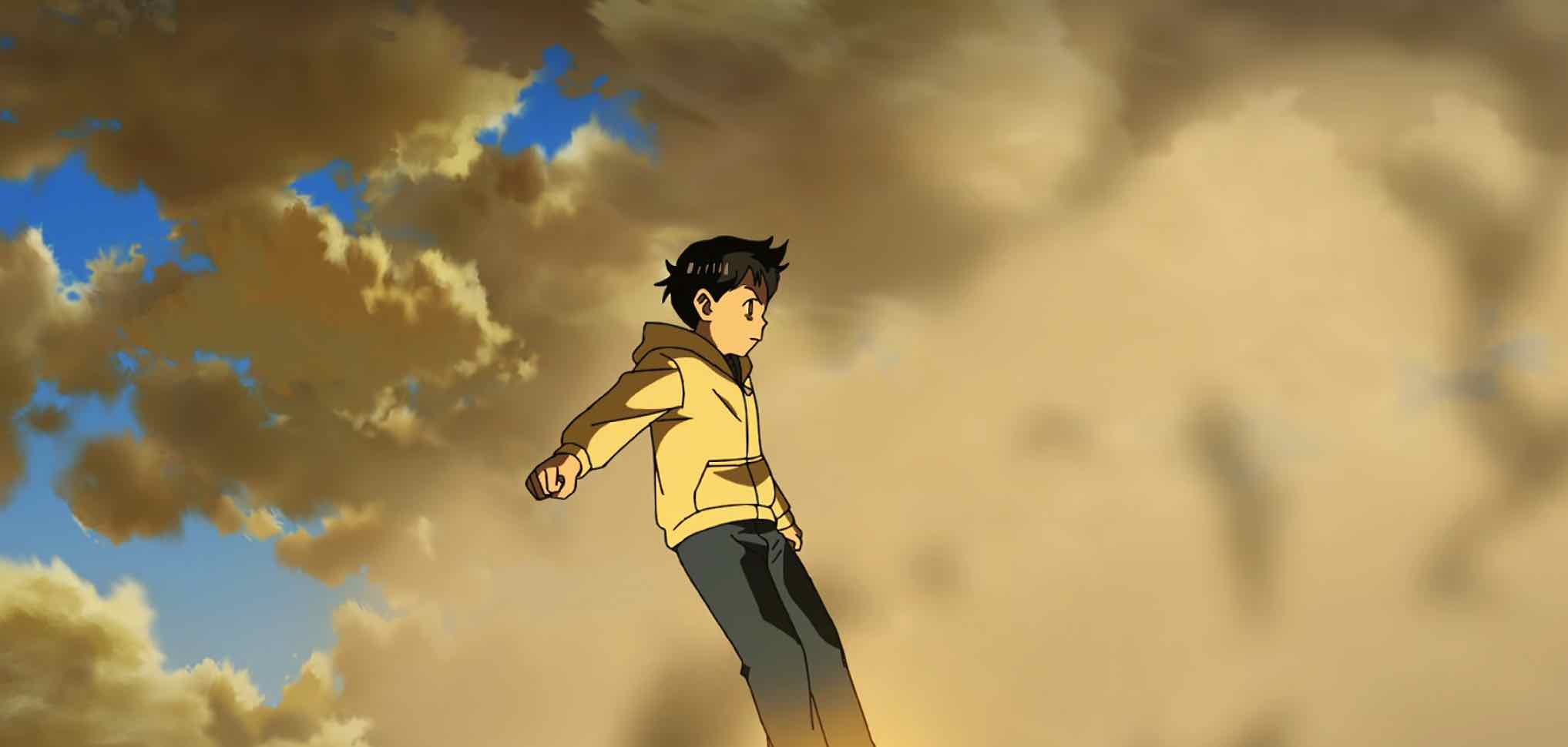
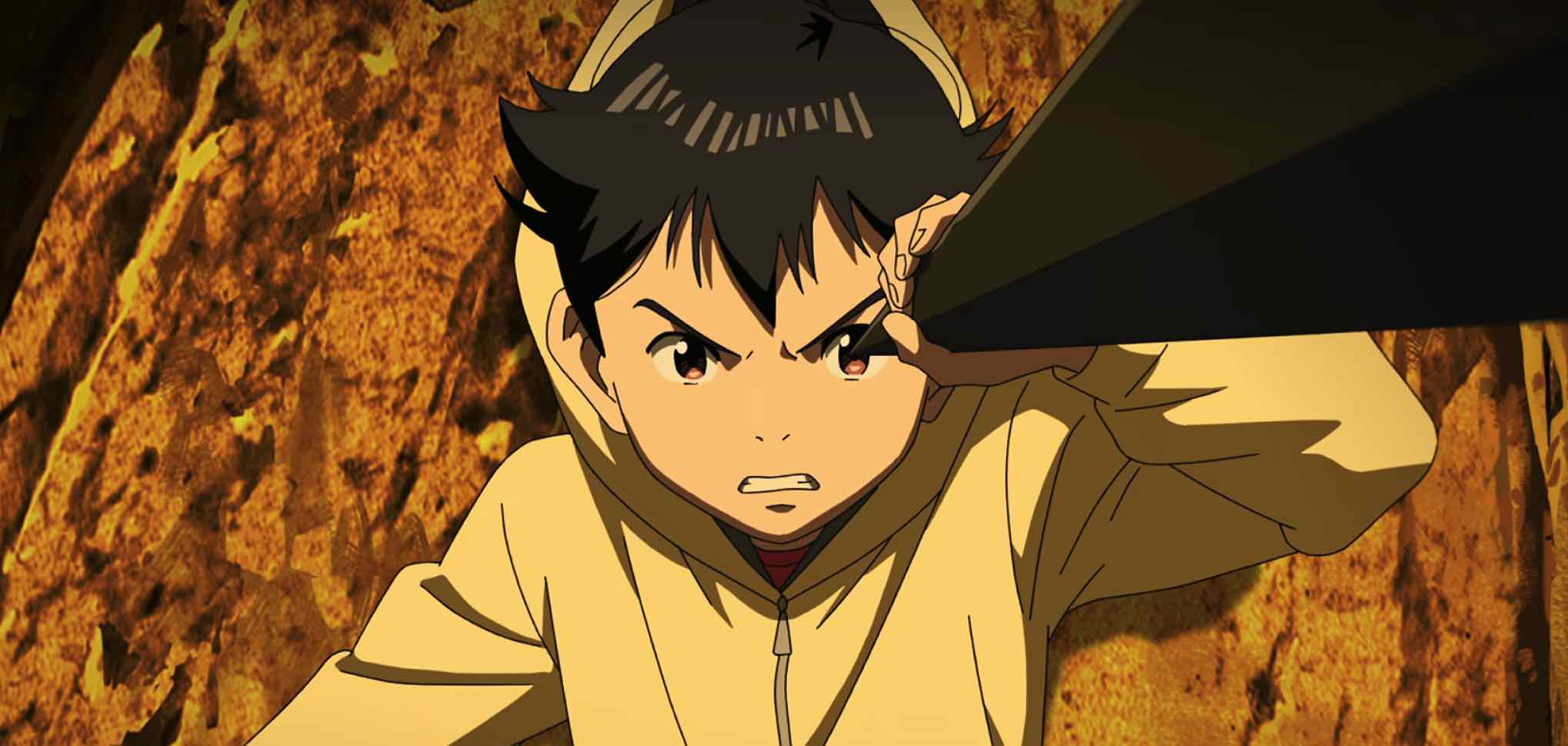
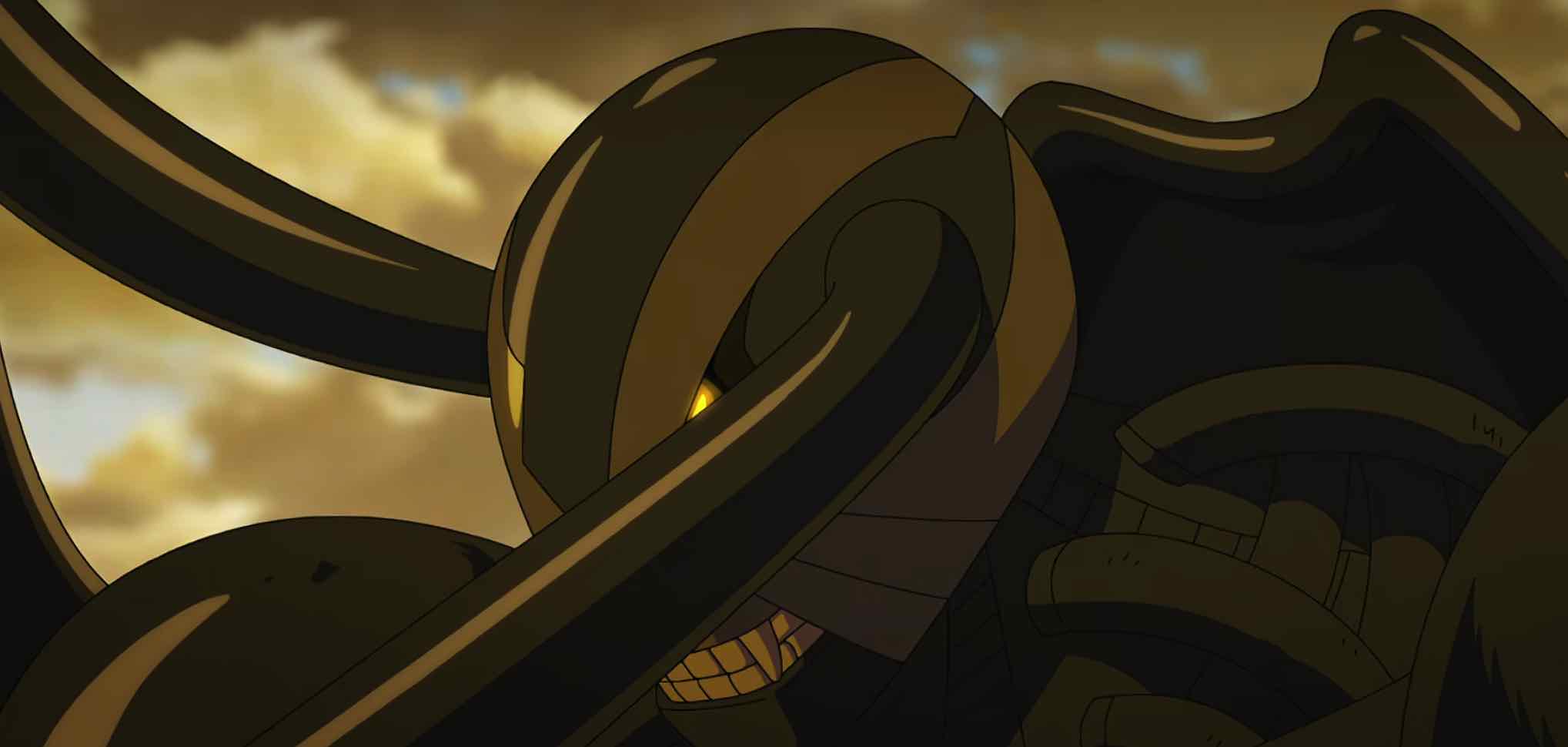
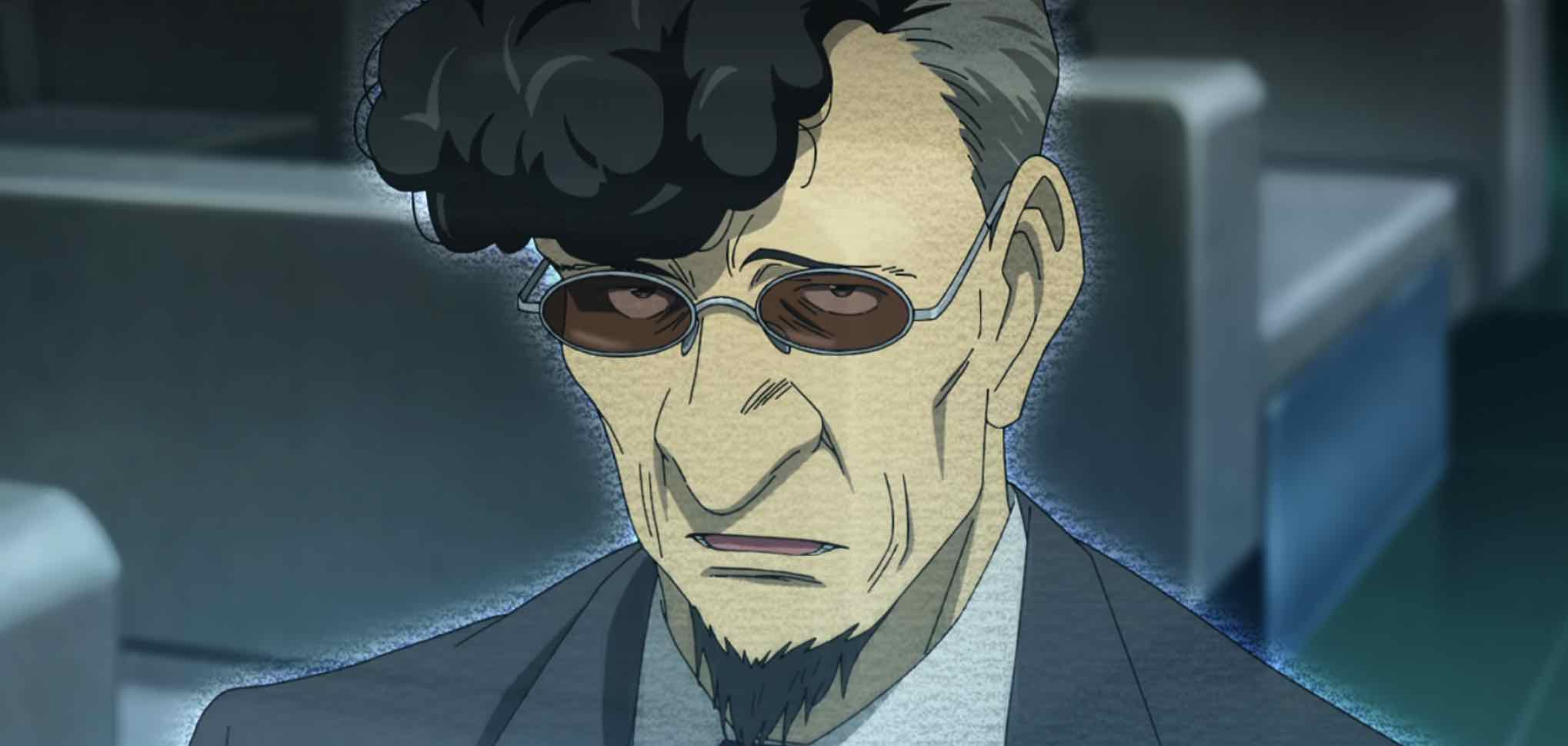
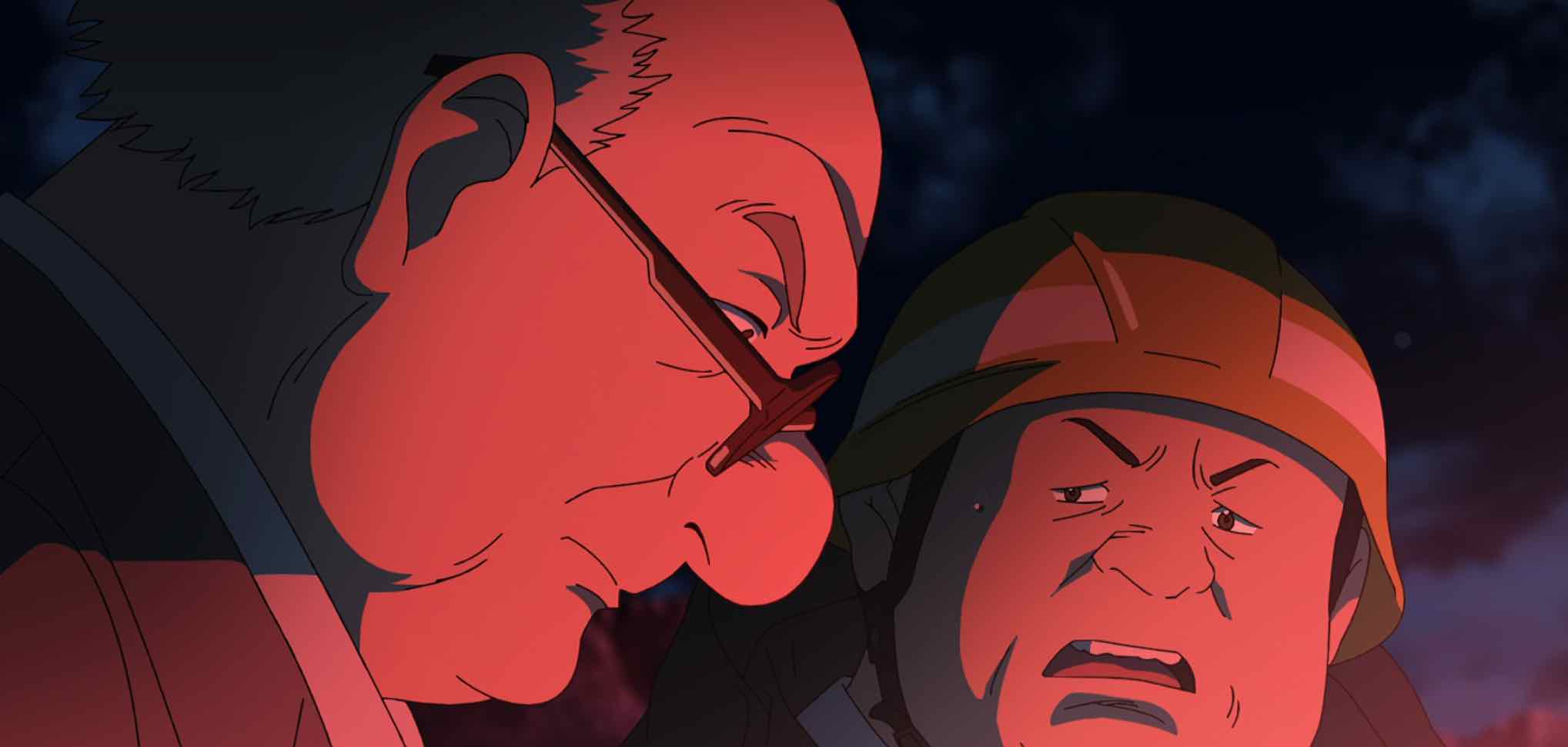
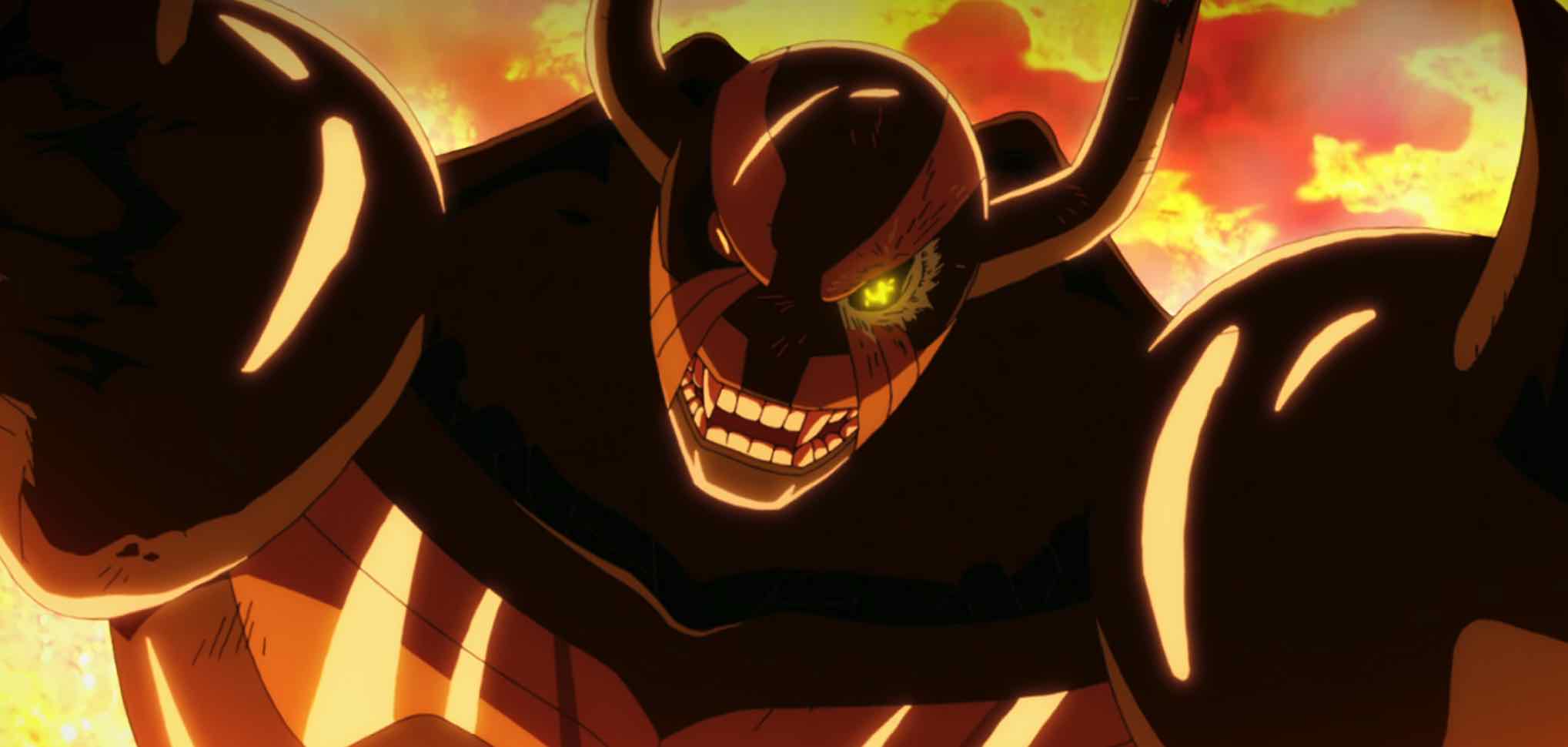
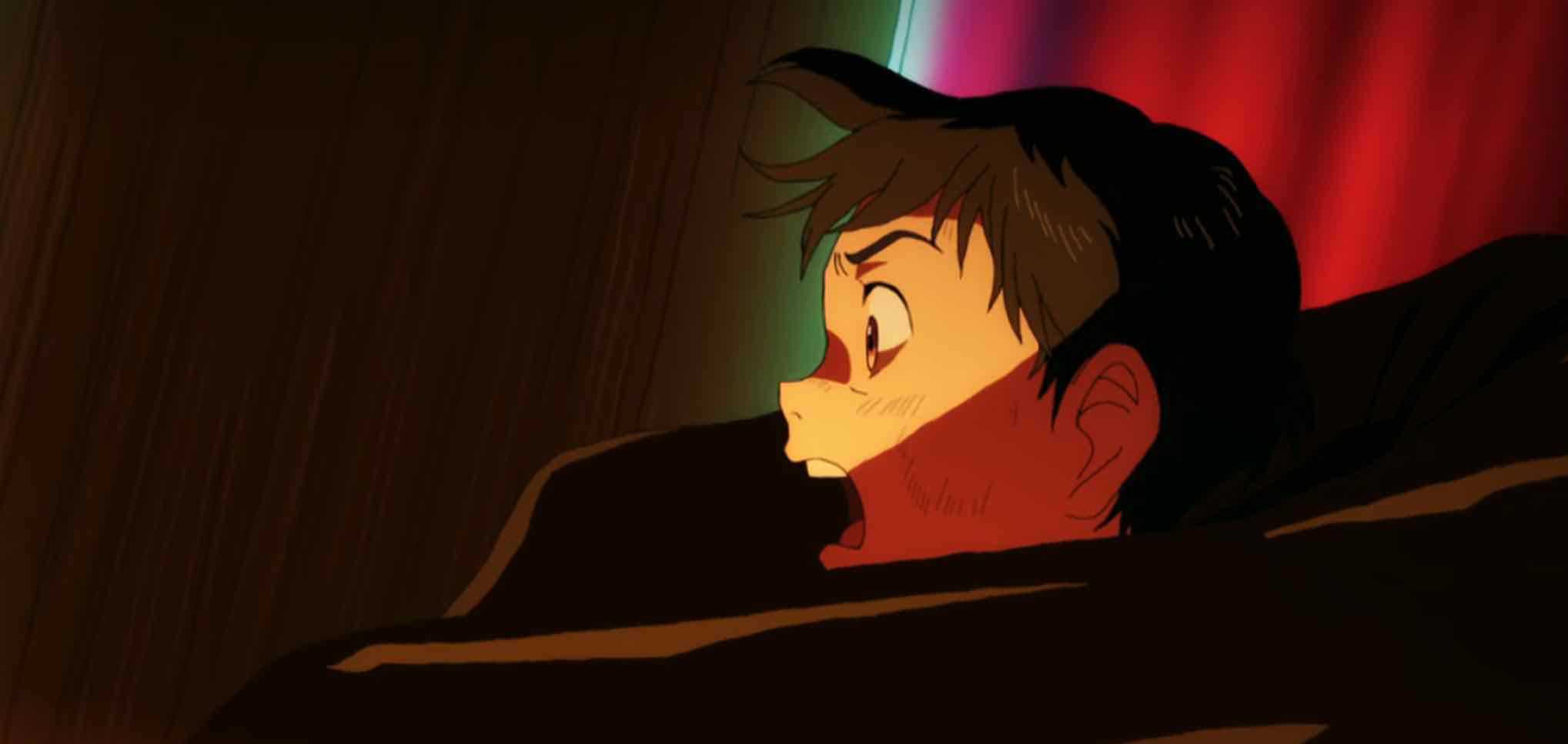
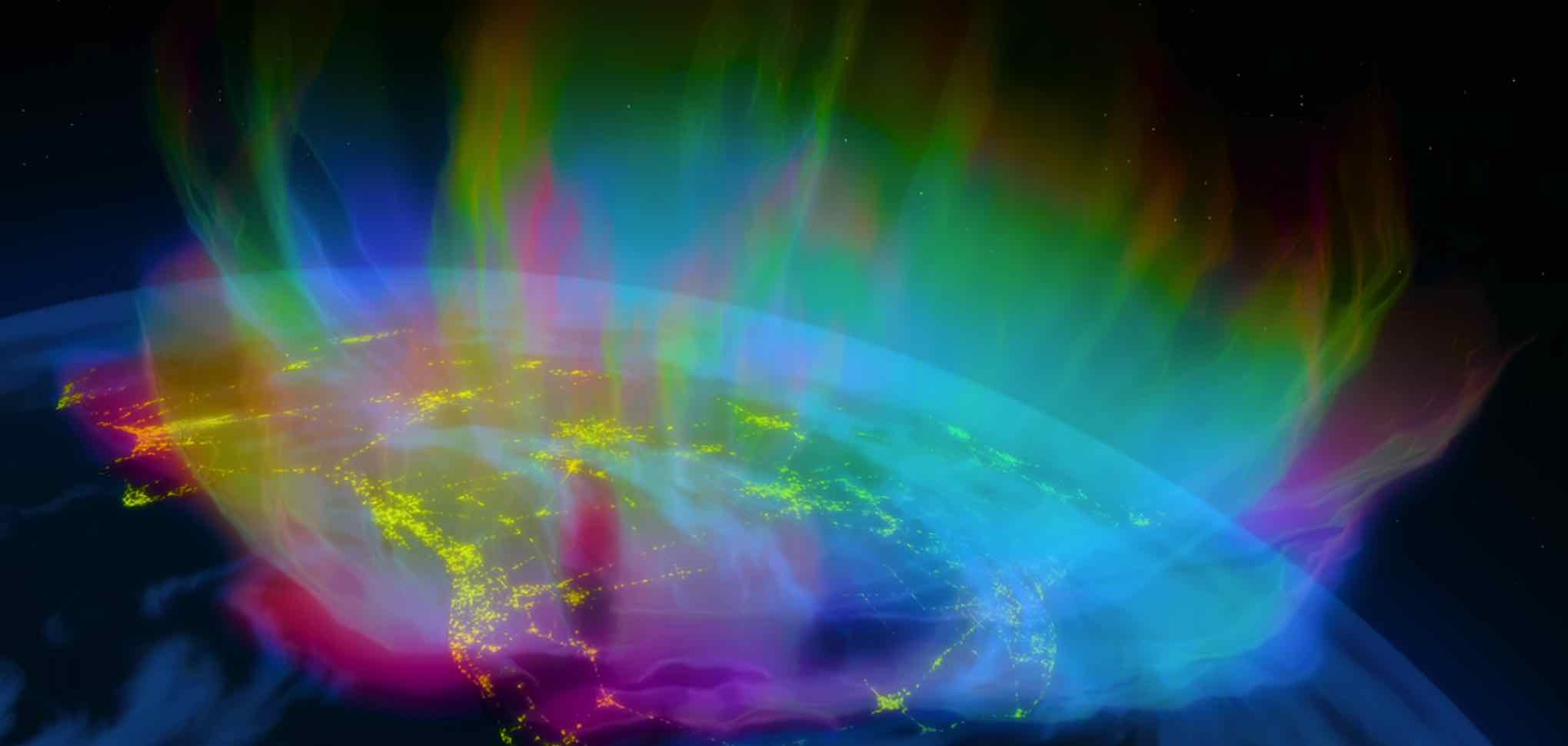
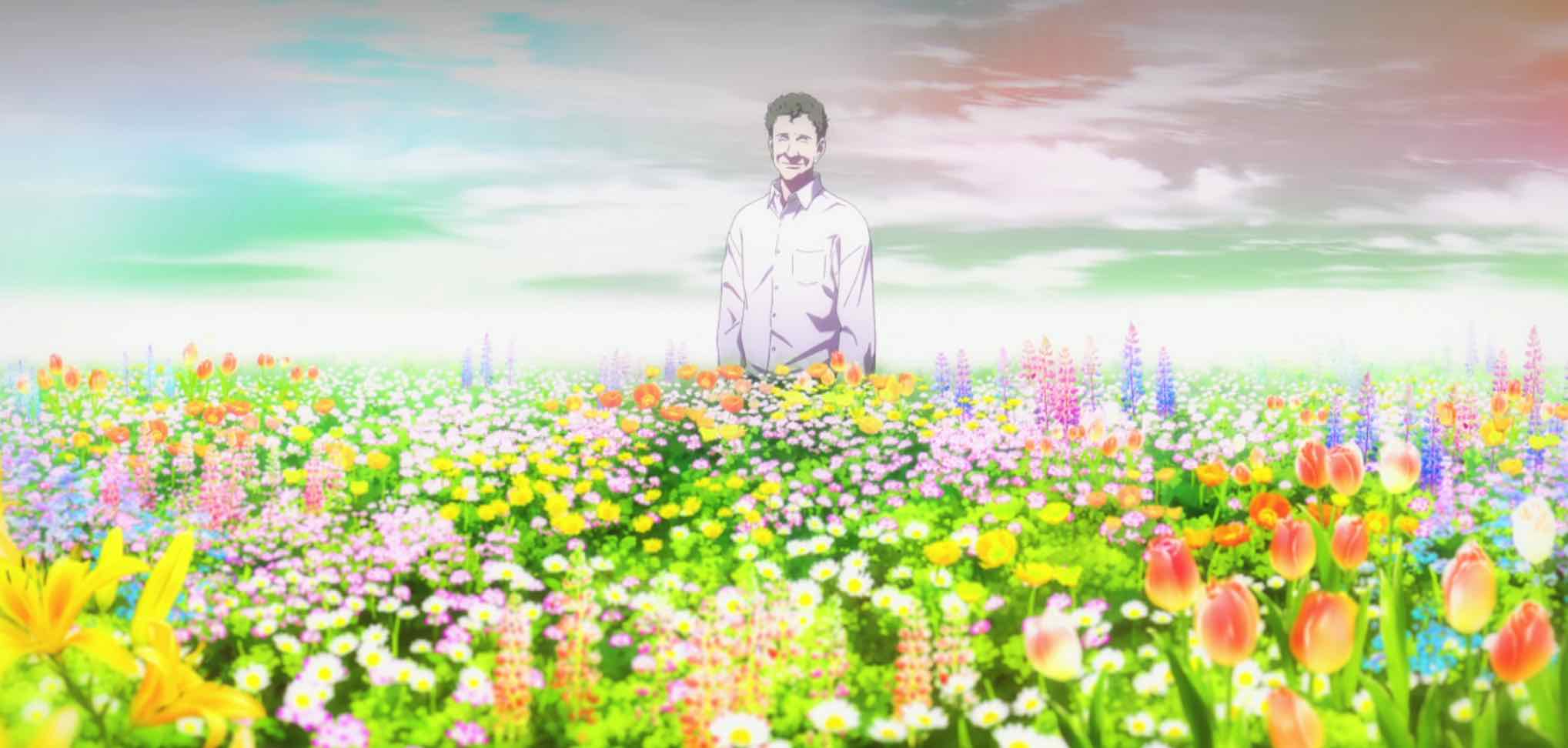
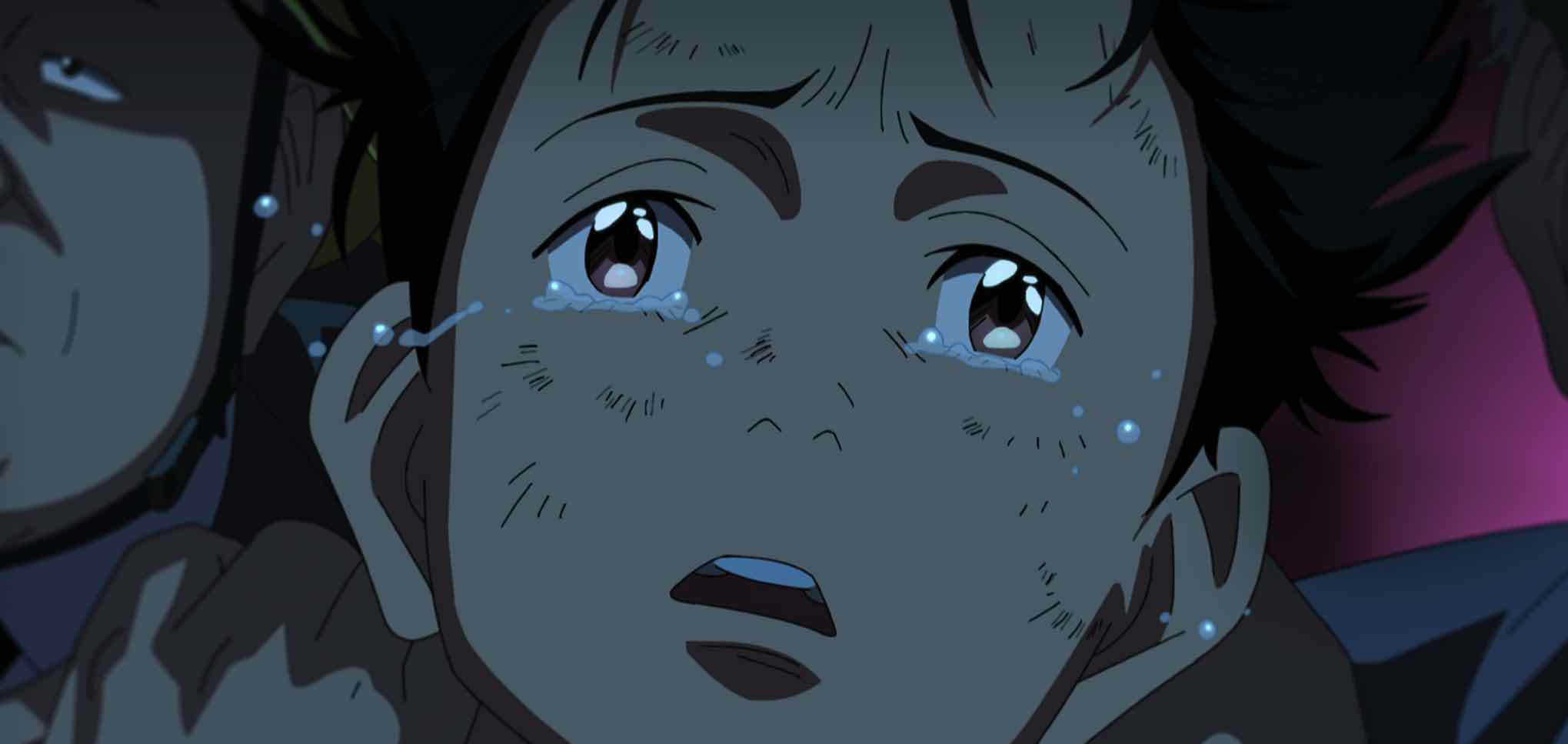
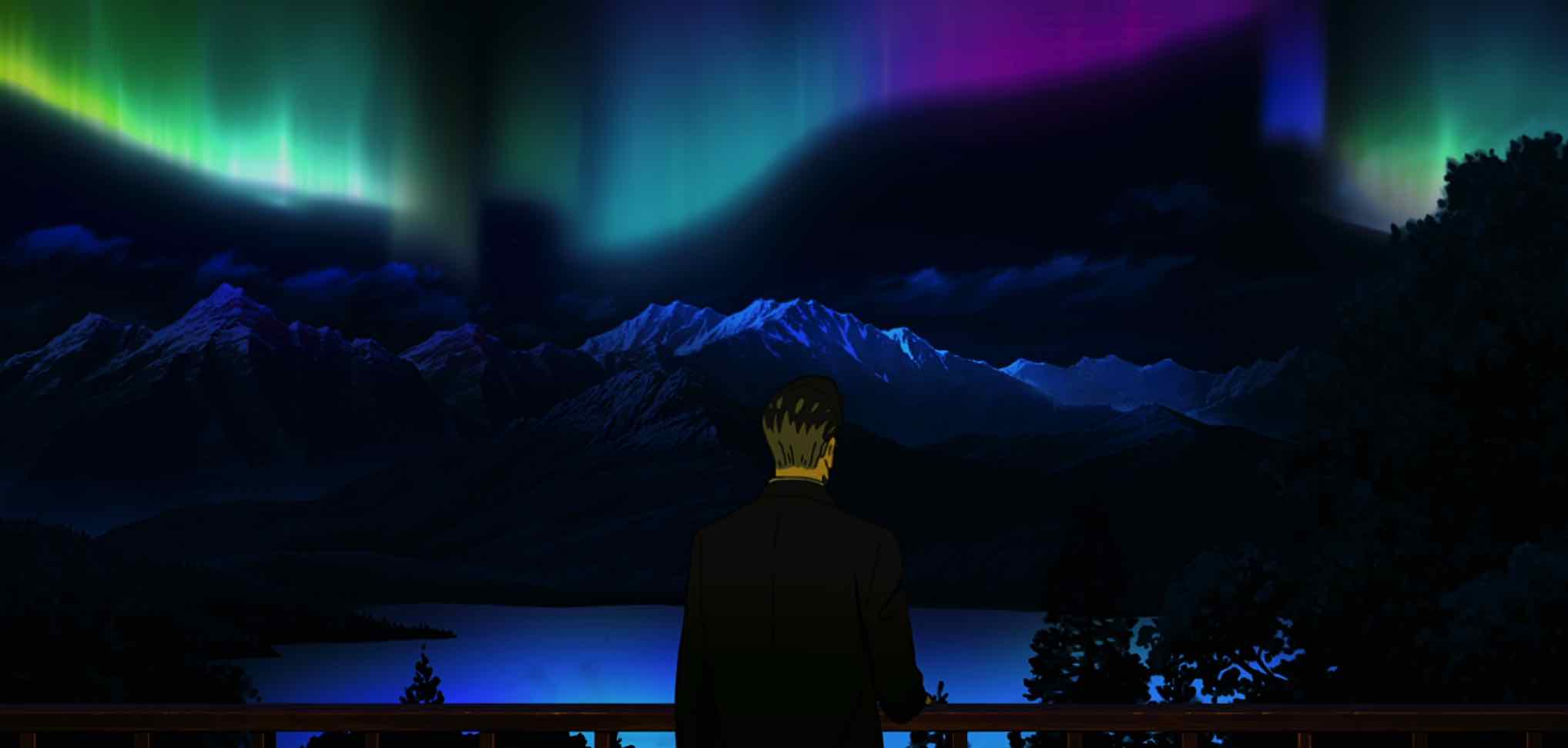
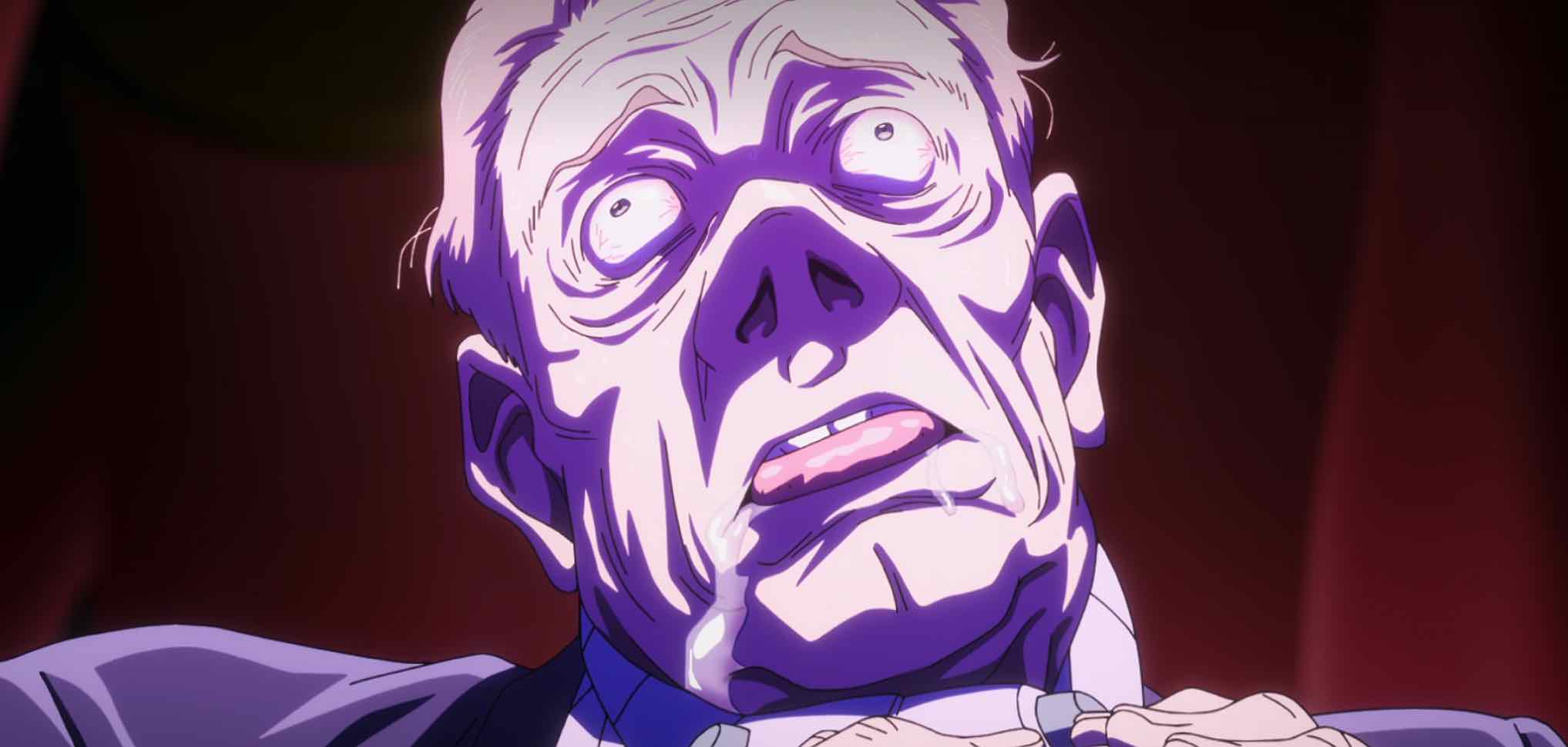
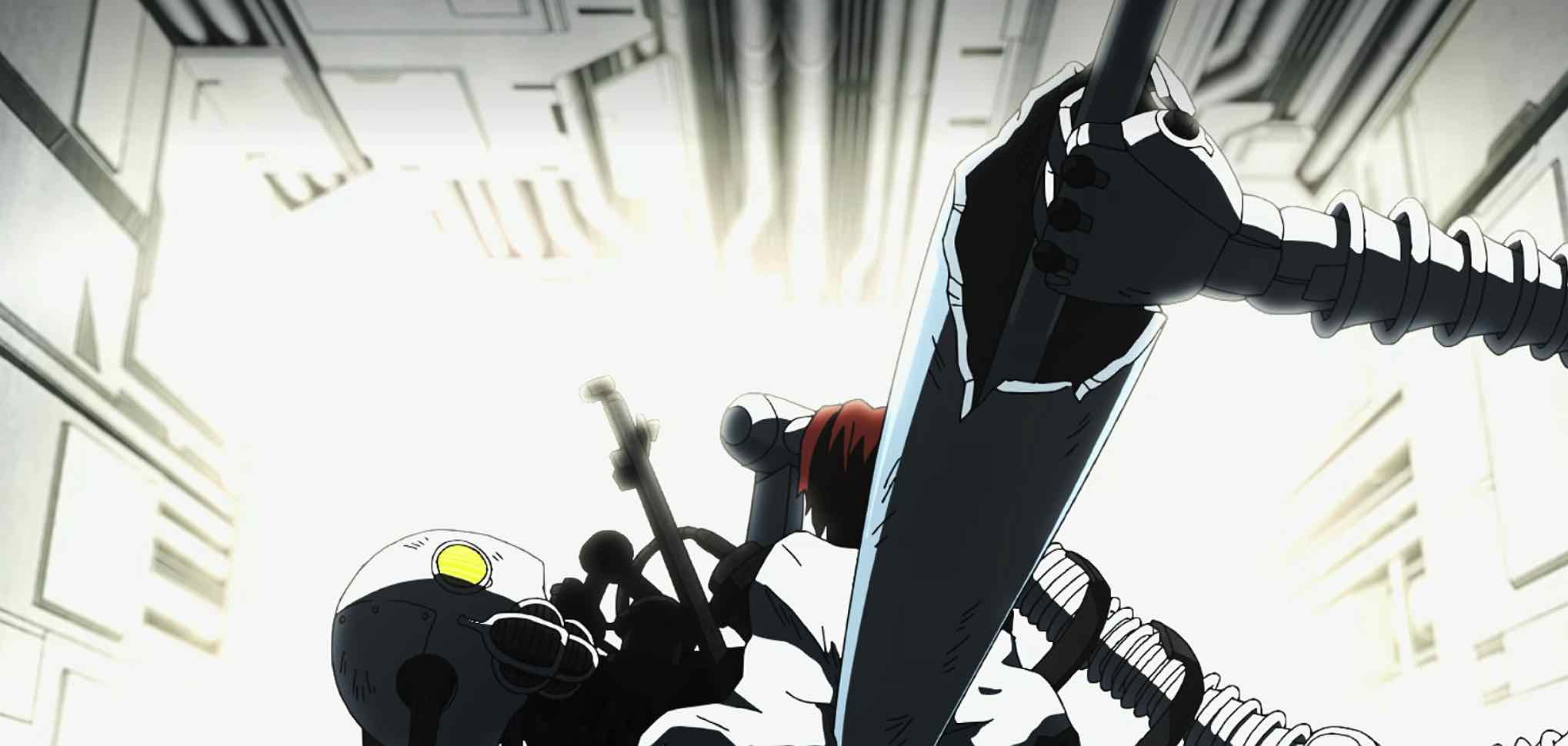
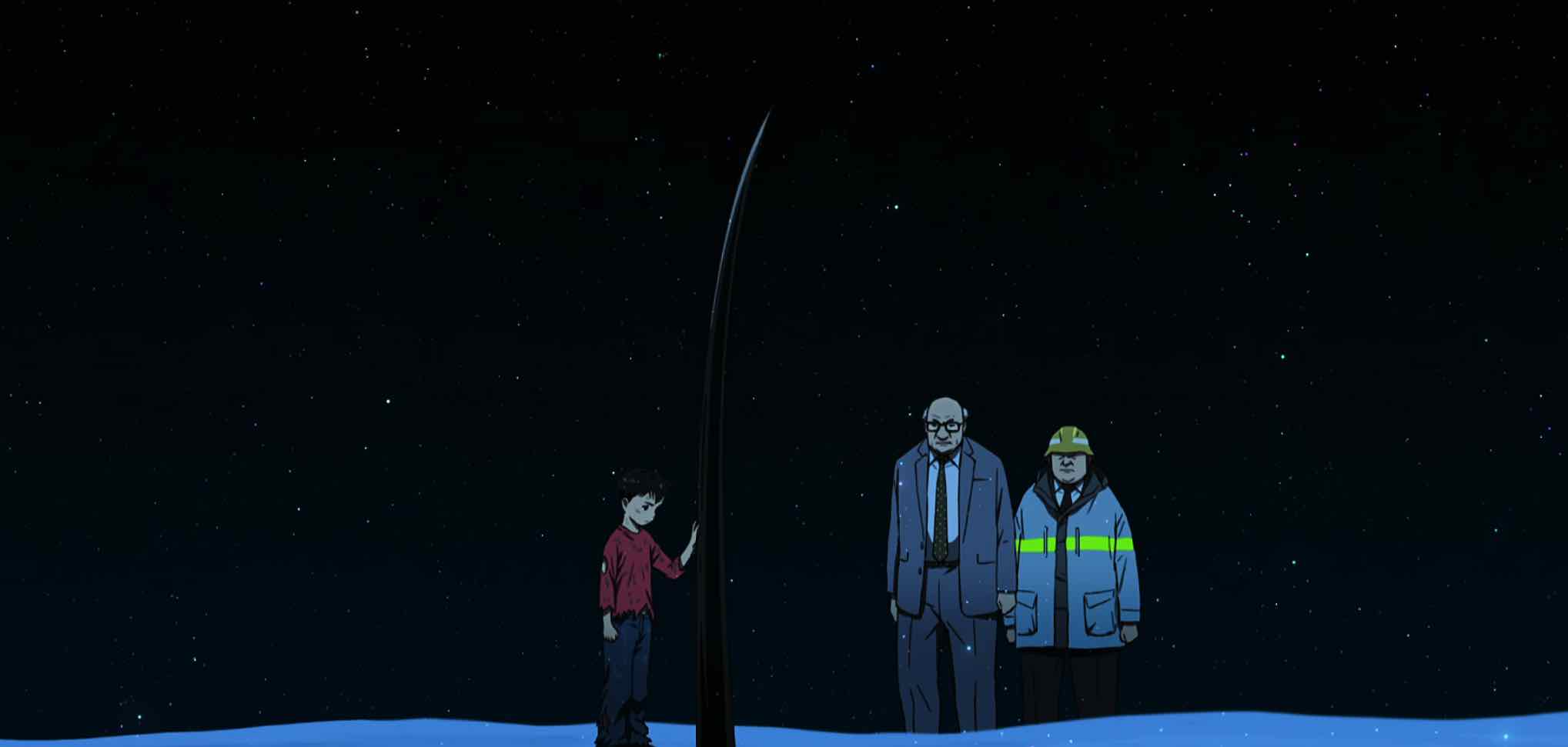
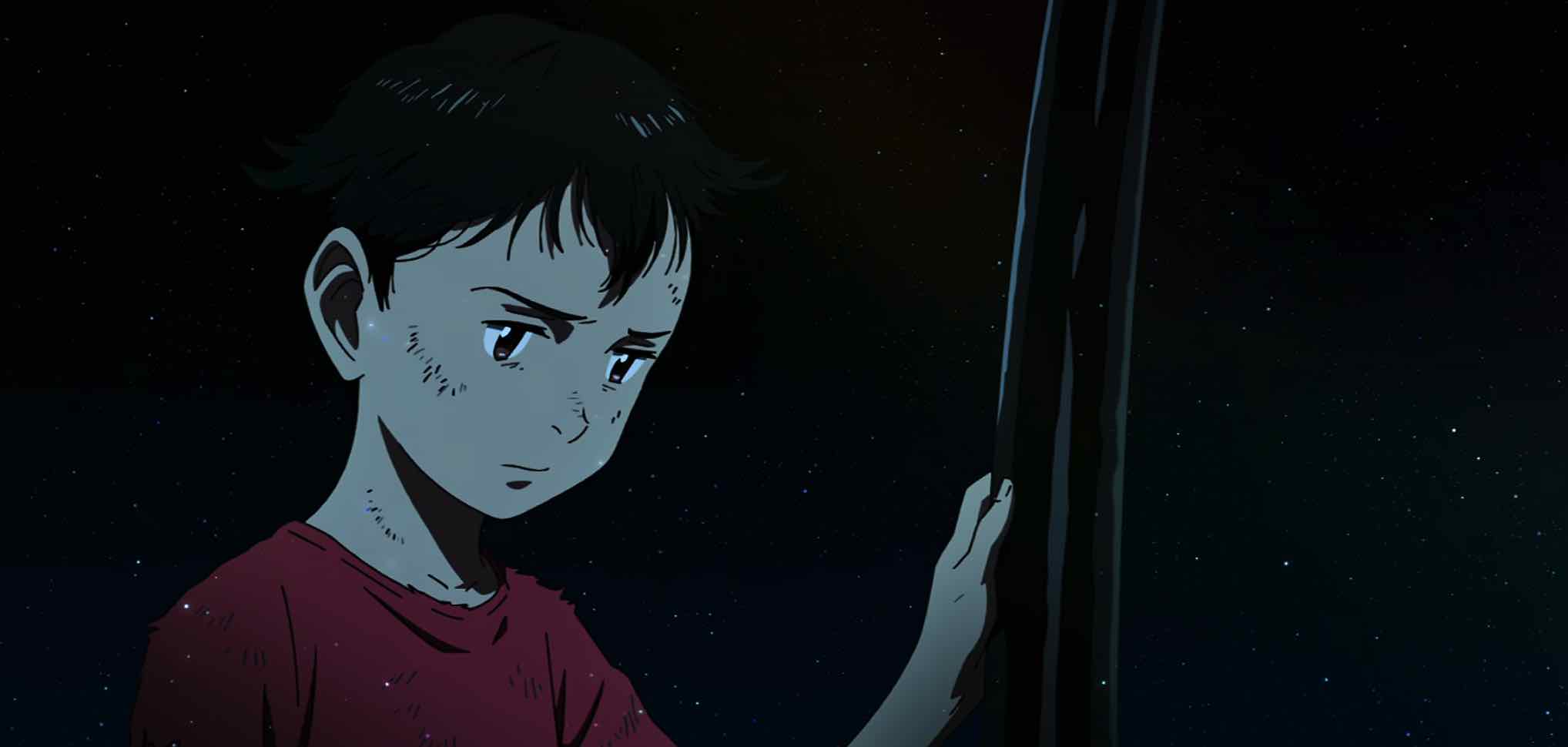

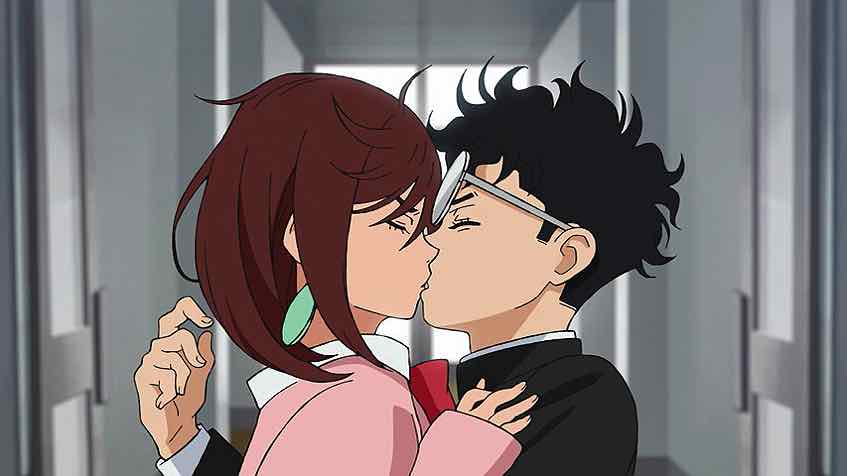
Snowball
December 10, 2023 at 11:01 pmMy only nitpick is that there isn’t much of an epilogue, but that is a signature of Urasawa’s narrative style, as Monster ended in quite a similar fashion. The ending leaves a very hollow feeling and a huge sense of loss, which I think is intended. I would have also liked more exploration of Brau’s character as he was quite enigmatic and interesting, especially his remark about Atom having a heart.
Atom has been the protagonist of Tezuka’s original manga, three TV series and other iterations and it’s a testament to Urasawa’s writing skills that the character can be remain as fascinating as the others that don’t have a lot of screen time and those that are newly introduced. There’s always something novel and of marvel with this version of Atom, which is also reflected in how the characters interact with him. I really loved the hug scenes, how he comforted Helena and Brau’s conversation with him was intriguing. Everyone needs an Atom in their lives.
The Atom vs Pluto vs Bora showdown was awesome and the soundtrack was excellent. Fittingly, the final scene of the aurora borealis reminded of the final episode of Vinland Saga 2, the other standout of 2023.
I’m really looking forward to your Top 10 of 2023.
Guardian Enzo
December 10, 2023 at 11:07 pmAtom is, in a sense, the son everyone wishes they could have. And ironically Tenma, who custom made him to be his son, rejected him. What a tool.
Stephen
December 11, 2023 at 11:37 amGlad to have watched this slowly following you ~~ cant imagine binging something like this. For me its AotY, as the original story is just so so good.
Guardian Enzo
December 11, 2023 at 11:48 amThanks, I would have hated binging it. Don’t you want an experience that special to last?
Smudgeous
December 11, 2023 at 11:43 pmI actually found myself avoiding binging for the opposite reason: by the end of most of the episodes, I felt I needed time to fully digest the entirety of each narratively dense chunk of story I’d just witnessed as well as prepare myself for the next iteration. Having not read the manga, I never knew what was coming next and was in no rush to encounter the next robot’s demise that started to feel inevitable, along with whatever emotional trappings it had in store for me.
donhumberto
December 18, 2023 at 4:40 amA bit late to the party but here’re my thoughts about this masterpiece:
First of all, I’ll be eternally grateful to Mr. Masao Maruyama and Netflix beacause there’s no way in hell we could have ever had this without those 2 (and really, even if Netflix decided to do only crappy full CGI adaptations of the shittiest isekai LN’s from now on I still would be eternally grateful to them for having provided the means to make this series a reality).
There’s nothing else I can add to how great this series is because I feel you have already said evertyhing about it that I wanted to say, so, yeah, I’m pretty much 100% with you on this one and I would go even further and say that this is easily the best series we’ve got in the last 10 years (to be more precise, I’d put Shin Sekai Yori a bit above Pluto, but that may change in the future upon rewatching both… who knows… they are both absolutely timeless masterpieces in my book)
However, despite all my praise there’s still something that’s bugging me (I hope you can help me out on this one): Who killed Geshicht, really? I mean, it’s obvious that it was Ali the flower kid/robot, but did he do it on his own will (if so, why would he want to kill Gesicht?) or was he being controlled by Abdullah (if so, is there any momment in the manga where this is made clear? I certainly can’t recall any scene implying that Abdullah had anything to do with Ali…), or was it maybe the anti-robot terrorists that manipulated Ali into killing Gesicht (that last one seems less plausible, but also possible…)… I dunno, what do you think? Was it maybe the teddy bear? I’ve read some theories about it on the internet and they seem quite plausible… I dunno…what’s your take on this?
Guardian Enzo
December 18, 2023 at 8:06 amIt was never explicitly stated (hell, Dr. Roosevelt’s identity was never explicitly stated) but to me it’s clear he was acting under Abullah’s control. The idea was that once he bought the flower that allowed Muhammad Ali to track him and kill him at the right moment.
donhumberto
December 18, 2023 at 6:11 pmThat’s right! I hadn’t really thought about the flower being used as a tracking device but it really makes sense now.. thanks for the reply 😉
John G
February 2, 2024 at 4:59 amAlso watched this slowly, and later.
As a person who hasn’t engaged with the manga at all, I understand the desire to make the USofT the ultimate bad guy, with the president thinking he’s destroying the robots for the good of his people, while the robot is destroying the humans, but… I fend the bear odd in typical manga/anime way, that the rest of the show doesn’t fall into. The lack of information about its creation is odd, the lack of directly linking the threads… how does Teddy control Abullah/Goji, who sorta controls Bora & Pluto?
It all feels a bit tenuous? Is it just supposed to be that Teddy was the one to initiate the war in the President’s mind against the Robots of Mass Destruction and the ploy to get them involved in a major world conflict? Which lead to the creation of Abullah, and Pluto and Bora, and them overcoming the human-defending powerful ai/robots, and pushing this hatred further into motion? That Teddy’s not directly controlling any strings because that wouldn’t make much sense right?
Or am I misunderstanding it?
They also go into so much detail to explain how Gesicht and Abullah gain their hatred, and how it’s then introduced into Atom, why spoil it with having another AI that you don’t explain. Where does Teddy’s hubris and disdain for humanity come from?
If we take it a step further, I’m not interested in the technical reasoning, but just the motivation, like any villain, what made this primary villain what it is? Where’s the 3 dimensional character? Is Teddy just a stand-in for the machine of the USA and it’s villainy and hubris has been created by the pain it has inflicted on the world through centuries?
Guardian Enzo
February 2, 2024 at 8:16 amAmong other things that’s a reason why VS finished ahead in the AotY race.
The problem is Urasawa never really provided answers to those questions himself. So anything you or I say is interpretation, with no objective way to verify whether or not it’s what he intended.